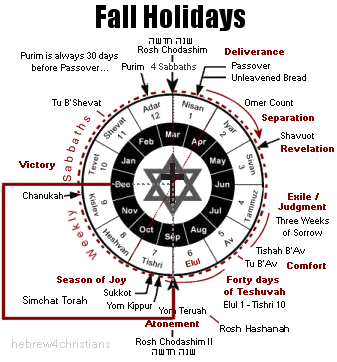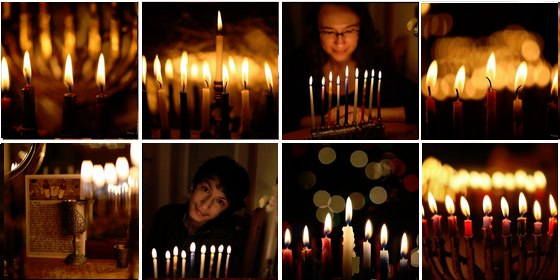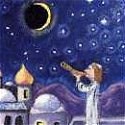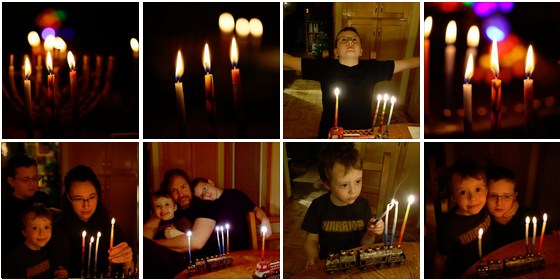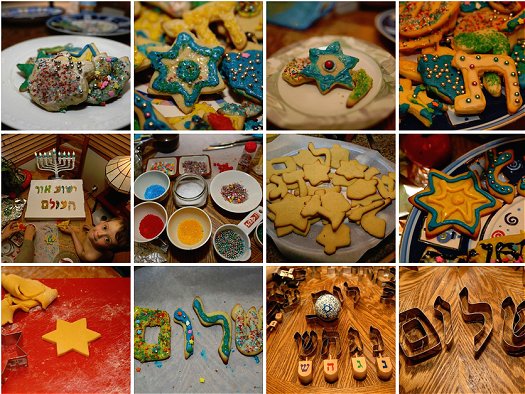|
Jewish Holiday Calendar
Note: For December 2014 site updates, please scroll past this entry....
The Jewish civil year begins in the fall, though the Biblical year begins in spring (Exod. 12:2). Preparations for the fall holidays begin with a thirty day period of teshuvah (repentance) during the (late summer) month of Elul. The following ten days begin with the Feast of Trumpets (i.e., Rosh Hashanah, on Tishri 1) and end with the Day of Atonement (i.e., Yom Kippur, on Tishri 10). These first ten days of the new year are called the "Ten Days of Awe" (i.e., aseret ye'mei teshuvah: עֲשֶׁרֶת יְמֵי תְּשׁוּבָה), or simply the Jewish "High Holidays." Just five days after the solemn time of Yom Kippur begins the joyous week-long festival of Sukkot ("Tabernacles"), which is immediately followed by the celebration of Simchat Torah.
The Fall Holidays:

The fall festivals prophetically indicate the Day of the LORD, the second coming of Yeshua, the great national turning of the Jewish people, and the establishment of the reign of the Messiah upon the earth during the Millennial Kingdom in the world to come.
Note that in accordance with tradition, the following holiday dates begin at sundown:
- Month of Elul (begins Mon., Aug. 25th, 2014)
- Month of Tishri (begins Wed., Sept. 24th, 2014)
- Month of Cheshvan (begins Thurs., Oct. 23rd, 2014)
- Month of Kislev (begins Sat., Nov. 22nd, 2014)
- Four Sabbaths: Vayetzei, Vayishlach, Vayeshev, Miketz
- Sigd - 50th day after Yom Kippur; (Tues., Nov. 29th)
- Dates for Chanukah 2014:
- 1st candle Tues., Dec. 16th [Kislev 25]
- 2nd candle Wed., Dec. 17th
- 3rd candle: Thurs., Dec. 18th
- 4th candle: Fri., Dec. 19th [Shabbat Miketz]
- 5th candle: Sat., Dec. 20th
- 6th candle: Sun., Dec. 21st
- Month of Tevet (Sun., Dec. 21st)
- 7th candle: Mon., Dec. 22nd (Tevet 1)
- 8th candle: Tues., Dec. 23rd [Zot Chanukah]
- Christmas: Thur. Dec. 25th (Tevet 3)
- Secular New Year (Tevet 10; Thur. Jan. 1st)
- Tenth of Tevet - Fast over seige of Jerusalem (Tevet 10; Thur. Jan. 1)
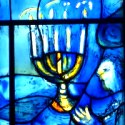 |
December 2014 Updates
Sufficient this day...

12.31.14 (Tevet 10, 5775) In the Gospel of Matthew we read these words of our LORD Yeshua the Messiah: "Therefore do not be anxious about tomorrow, for tomorrow will be anxious for itself. Sufficient for the day is its own trouble" (Matt. 6:34). Soren Kierkegaard comments: "If there is no next day for you, then all earthly care is annihilated. When the next day comes, it loses its enchantment and its disquieting insecurity. If there is no next day for you, then either you are dying or you are one who by dying to temporality has grasped the Eternal, either one who is actually dying or one who is really living... The one who rows a boat turns his back to the goal toward which he is working. So it is with the next day. When, with the help of the Eternal, a person lives absorbed in today, he turns his back to the next day. The more he is eternally absorbed in today, the more decisively he turns his back to the next day." Amen. May God help us live for Him today. Today is the day of salvation; today may we hear His voice...
"Fear not, for I am with you..." אַל־תִּירָא כִּי עִמְּךָ־אָנִי. What we need most of all is right here, present in this hour, whether we're conscious of it or not. God is with you, even if you feel alone, lost in darkness, unclean, afraid... "Dear Lord Jesus, I don't know who I am, I don't know where I am, and I don't know what I am, but please love me" (prayer of a sufferer from Alzheimer's disease). That's what we need most, to trust that we are safe in God's love, and that's the ultimate message of our atonement in Messiah.
 |
Blessings of Israel...

[ The following is related to our Torah reading for this week, Parashat Vayechi... ]
12.31.14 (Tevet 10, 5775) "Then Jacob called his sons and said, "Gather yourselves together, that I may tell you what shall happen to you in the end of days (בְּאַחֲרִית הַיָּמִים). Assemble and listen, sons of Jacob (בְּנֵי יַעֲקב), listen to Israel your father (יִשְׂרָאֵל אֲבִיכֶם)" (Gen. 49:1-2). Here Jacob used both his names before blessing his sons. His name "Jacob" represented his natural life – his birth as the "heel-holder" of Esau; his hunger for his earthly father's blessing; and his self-doubt as he pretended to be someone other than himself... His name "Israel," on the other hand, was given to him after he grappled with the mysterious Angel, refusing to relent until he found his blessing despite the pain of his past. "Israel" represents Jacob's rebirth, his God-given ability to father his children, and the grace to impart the appropriate blessing to each child as needed (Gen. 49:28).
 |
Turning to a "New Year"...

[ A heart cry for this "new year" and always... ]
12.31.14 (Tevet 10, 5775) The Book of Lamentations is an acrostic poem that begins with the Hebrew letter Aleph (א) in the word "eichah" (אֵיכָה), which also marks the Hebrew name of the book. "How (eichah) lonely sits the city that once was full of people!" (Lam. 1:1). The sages note that this word "how" (i.e., eichah) could also be read as "where are you?" (i.e., ayeka: אַיֶּכָּה), God's first word spoken to Adam after he broke covenant in the Garden (Gen. 3:9). Note that God's question is often our own: "Where are you? Where are you, God? Are you here, in the midst of this tedious moment? Do you know my loneliness, my ache for love?" Yet how many people today live in a state of self-imposed exile from the LORD? God uses our loneliness ("how lonely...") to search our hearts, asking each of us, ayeka – "Where are you?" "Why have you turned away from me and chosen a state of exile?" Our haunting sense of God's absence impels us to seek for him... God awaits our only possible response, "Hashivenu!" -- an imperative (demand) for the grace to repent: "You return us (i.e., you cause us to return) so that we may be reunited with you and healed!"
הֲשִׁיבֵנוּ יְהוָה אֵלֶיךָ וְנָשׁוּבָה
חַדֵּשׁ יָמֵינוּ כְּקֶדֶם
ha·shi·ve·nu · Adonai · e·ley·kha · ve·na·shu·vah
cha·desh · ya·mei·nu · ke·ke·dem

"Turn us back to yourself, O LORD, so that we may return to you;
renew our days as of old" (Lam. 5:21)

Hebrew Study Card
Our response to the questioning love of the LORD is called teshuvah ("turning [shuv] to God"). Teshuvah is an "answer" to a shelah, or a question. God's love for us is the question, and our teshuvah – our turning of the heart toward Him – is the answer.
Blessing without Envy...

[ The following is related to our Torah reading for this week, Parashat Vayechi... ]
12.31.14 (Tevet 10, 5775) When Joseph tried to correct his father regarding which of his two sons was the firstborn, he said: "I know my son, I know" (Gen. 48:19). Jacob's "incongruous" blessing of Ephraim and Manasseh was intended to serve as a parable to warn of the dangers of fraternal envy. The blessing of God is for the whole family, regardless of whoever may be regarded as "the favored son" (or favored daughter, for that matter). And since both Ephraim and Manasseh had accepted God's will without protest, Jacob ordained that these two brothers should serve as examples for all Israel to follow. Therefore he blessed them that day, and carefully added, "By you Israel will pronounce blessings, saying, יְשִׂמְךָ אֱלהִים כְּאֶפְרַיִם וְכִמְנַשֶּׁה - yesimkha Elohim ke'efraim ve'khimnasheh: 'May God make you like Ephraim and as Manasseh'" (Gen. 48:20) -- a phrase that has been incorporated into our Sabbath blessings. "The first shall be last and the last shall be first," but regarding the love and blessing of God, this makes no difference....
 |
The Grave of Jacob...
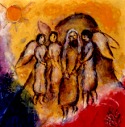
12.30.14 (Tevet 9, 5775) In our Torah for this week (i.e., parashat Vayechi), Jacob said: "I am about to die; in my grave that I hewed out for myself (בּקִבְרִי אֲשֶׁר כָּרִיתִי לִי)... there you shall bury me" (Gen. 50:5). Though Abraham had purchased the Cave of Machpelah (מְעָרַת הַמַּכְפֵּלָה) as a family burial site, Jacob personally dug his own grave there so it would serve as a reminder of the day of his death. In this way Jacob regarded himself dead to this world yet retained hope in the world to come (Heb. 11:10).
לִמְנוֹת יָמֵינוּ כֵּן הוֹדַע
וְנָבִא לְבַב חָכְמָה
lim·not · ya·me·nu · ken · ho·da
ve·na·vi · le·vav · chokh·mah

"Teach us to number our days
that we may get a heart of wisdom."
(Psalm 90:12)

Hebrew Study Card
Moses prayed to God: "teach us to number our days," that is, help us understand how to make our days count for eternity, to have a weight of glory that will shine in the world to come... The sages say on the day of death, one considers one's life as if it had been a single day... Life goes by so quickly, and we never know when our personal Rosh Hashanah will come. "No one knows the day or hour..." That's why it is so vital to be healed and to turn to God while there is still time. So turn to him today and bacharta ba'chayim – "choose life!" "For this commandment (of turning to God in teshuvah) is not hidden from you, and it is not far away. It is not in heaven... nor across the sea.... Rather, the matter is very near you - in your mouth and your heart - to do it" (Deut. 30:11-14; cp. Rom. 10:8-13).
The Word Made Flesh...
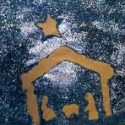
12.30.14 (Tevet 9, 5775) At Sinai the Jewish people heard the Voice of God (קוֹל אֱלהִים) speaking from the midst of the fire (Deut. 4:33), an event that foreshadowed the great advent of the King and Lawgiver Himself, when the Eternal Word (דְבַר־יְהוָה) became flesh and dwelt with us (Phil. 2:6-7; John 1:1,14). Any theology that regards God as entirely transcendent will have a problem with divine immanence, since the highness, holiness, and perfection of God will make him seem distant, outside of us, far away, and unknown... Incarnational theology, on the other hand, manifests the nearness of God to disclose the divine empathy. Indeed, the LORD became Immanuel (עִמָּנוּ אֵל), "one with us," to share our mortal condition, to know our pain, and to experience what it means to be wounded by sin, to be abandoned, alienated, forsaken. It is God's own bittul hayesh (בִּטּוּל הַיֵּשׁ) - his self-nullification for the sake of love and truth. The "Eternal made flesh" bridges the gap between the realm of Ein Sof (אין סוף), the infinitely transcendent One, and the finite world of people lost within their sinful frailty. Of course we believe Adonai Echad (יְהוָה אֶחָד) - that the "LORD is One" - both in the sense of being exalted over all things but also in the sense of being compassionately involved in all things (Rom. 11:36). We therefore celebrate the giving of the Torah both at Sinai and especially at Bethlehem with the birth of Messiah. We celebrate that God is indeed the King and Ruler over all, but we further affirm that God's authority and rule extends to all worlds - including the realm of our finitude and need...
As I've mentioned elsewhere, the climax of Sinai was the revelation of the Sanctuary. The two tablets of the law, summarizing the Ten Commandments, were stored inside the famous Ark of the Covenant (אֲרוֹן בְּרִית־יְהוָה), a sacred "three-in-one" box placed in the innermost chamber of the Tabernacle called the Holy of Holies (קדֶשׁ הַקֳּדָשִׁים). As such, the Ark served as kisei ha-kavod (כִּסֵּא הַכָּבוֹד), the Throne of Glory itself. Upon the cover (or crown) of the Ark (i.e., the kapporet) were fashioned two cherubim (i.e., angel-like figures) that faced one another (Exod. 25:17-18). According to the Talmud (Succah 5b), each cherub had the face of a child - one boy and one girl - and their wings spread heavenward as their eyes gazed upon the cover (Exod. 25:20). It was here that God's Voice would be heard during the Yom Kippur service, when sacrificial blood was sprinkled upon the crown to symbolize the atonement of sin secured through Messiah, the Word that became flesh for us... In the very heart of the Sanctuary, then, we see the Word of God and the sacrficial blood.
God Himself was clothed with human skin: our flesh, our bones... The incarnation is the "Absolute Paradox," as Kierkegaard once said, wherein the infinite and the finite meet in mystery of the Divine Presence. Here God "touches a leper," eats with sinners and prostitutes, sheds human tears, and suffers heartache like all other men... The gloriously great God, the very Creator of the cosmos, has "emptied Himself" to come in the form of a lowly servant (δοῦλος) - disguised to the eyes of the proud and hardhearted, but is revealed as High Priest to those who are genuinely broken and in profound need. The LORD God is God over all possible worlds, and that includes both the celestial realms of the heavens but also the world of the fallen, the ashamed, the alienated, and the lost... God's infinite condescension reveals and augments the majesty of His infinite transcendence. There is no world - nor ever shall there be such - where the LORD God Almighty does not reign and have preeminence.
Do not suppose for a moment that the Torah of Moses does not teach "incarnational" theology. Since God created human beings in his image and likeness, the "anthropomorphic language" of Scripture is meaningful. The LORD reveals himself in human terms - using human language, expressing human emotions, and so on, as it says: Moses spoke to God panim el panim - "face to face" (Deut. 34:10). The Torah always has to take on human form - the Word made flesh - for the sake of human beings who live in flesh and blood reality...
The greatest expression of God's word is found in the Presence of Yeshua. This is the Word of God that "tabernacles" with us, full of grace and truth (John 1:14). Yeshua is the "Living Torah," Immanuel (עִמָּנוּ אֵל), "God with us," who enters our world to rescue us from death. Our Scriptures state that "in these last days God has spoken to us by his Son, whom He appointed the Heir of all things, through whom also He created the worlds" (Heb 1:2). Note that the Greek construction for the phrase translated, "by his son" is ἐλάλησεν ἡμῖν ἐν υἱῷ, which literally means "he spoke to us in Son" -- that is, in the language or voice of the Son of God Himself... God speaks the language "of Son" from the midst of the fire revealed at Zion. "Therefore, since we are receiving a kingdom that cannot be shaken, let us be thankful, and so worship God acceptably with reverence and awe (μετὰ αἰδοῦς καὶ εὐλαβείας) - for our God is Esh Okhelah - a Consuming Fire" (Heb. 12:28-29).
 |
Through a Glass Darkly...

12.30.14 (Tevet 9, 5775) We walk by faith, not by sight - by hearing the Word of God, heeding what the Spirit of God is saying to the heart... For now we "see through a glass darkly," which literally means "in a riddle" (ἐν αἰνίγματι). A riddle is an analogy given through some resemblance to the truth, though quite often the correspondences are puzzling and obscure. Hence, "seeing through a glass darkly" means perceiving obscurely or imperfectly, looking "through" something else instead of directly apprehending reality. We see only a reflection of reality, and our knowledge in this life is indirect and imperfect. This is contrasted with the "face to face" (פָּנִים אֶל־פָּנִים) vision and clarity given in the world to come, when our knowledge will be clear and distinct, and the truth of God will be fully manifest and no longer hidden. Being "face to face" with reality means being free of the riddles, the analogies, the semblances, etc., which at best adumbrate our way.. Such reflection should make us humble whenever we share our faith. "Now we know in part, but then shall we know in whole" (1 Cor. 13:12). An honest theology must find a place for mystery, for "seeing through a glass darkly," and for the apprehension of awe and wonder.
Since God is the Infinite One (אֵין סוֹף) whose understanding is without limit (Psalm 147:5), we must use analogies, metaphors, symbols, allusions, parables, poetry, and other linguistic devices to convey spiritual truth and meaning. We compare (συγκρίνω) spiritual things with spiritual (1 Cor. 2:13). Some mystics have said the way to God is through the transcendence of words altogether, though most use imagery and poetry about "ineffable" reality. Others, like Soren Kierkegaard, use "indirect communication" to evoke the decision to believe, to find hope, and to walk by faith. Yeshua himself regularly used parables and stories to communicate deeper truths about ultimate reality. He likened the human heart to "soil" into which the Heavenly Farmer plants seed; he wanted his followers to know God as "heavenly Father," the idealization of family love, and so on. Often he was surprised at how dull his own disciples were regarding his use of spiritual analogies (Matt. 15:16, 16:9-11; Mark 8:17; John 6:22-66). Furthermore Yeshua often taught in parables because they simultaneously conceal and reveal the truth. A parable obscures the truth to those who don't really want it; just as it reveals the truth to those who do (Luke 8:9-10). Since Yeshua's whole life was a parable of sorts - a "disguise" that led to the victory of our deliverance (Phil. 2:7) - it is not surprising that he regularly used "figures of speech" to provoke people to examine their own heart attitude and faith... In this connection note that Yeshua never explained the "mysteries of the kingdom of God" directly to the crowds, nor did He ever pander to the crowd's clamor or interests. His message is always meant for the individual soul who was willing to follow Him -- to the one who had "ears to hear." Yeshua will forever be the Face of God to us, our Mediator and Savior, blessed be He (2 Cor. 3:18).
Just as there are hundreds of Names of God given in Scripture, so there are many analogies to help us understand His heart. For instance, God is likened to a farmer, a shepherd, a caring neighbor, a tenant, a king, an impartial judge, a pottery maker, an investor, an employer, a jilted husband, a passionate lover, and so on. However, the analogy Yeshua used the most was that the LORD God is our Heavenly Father, and we are His children. As it is written in the Psalms, "Like a father pities his children, so the LORD pities those who fear Him" (Psalm 103:13). The most intimate Name of God is simply Abba (אבּא), a term of endearment for a child uses for his father. For those who can believe, the eyes of the LORD are like those of a loving father who greatly rejoices over the presence of his child.
 |
Courage and Forgiveness...

[ The following is related to our Torah reading for this week, Parashat Vayechi... ]
12.29.14 (Tevet 8, 5775) After the burial of their father Jacob, the brothers said, "perhaps Joseph will repay us the evil we did him" (Gen. 50:15). The commentator Rashi notes the word translated "perhaps" (לוּ) expresses an "if only" wish: "We wish Joseph would repay us the evil we did him." The brothers could not accept Joseph's forgiveness because they clung to their guilt and shame... It would have been easier for them to tolerate retribution for their wrongs than to accept such unmerited grace and kindness. And such is the case with some of us, too. We might find it easier to trust in God's disapproval of us more than his welcoming love, since that agrees with our sense of self-contempt. We must be careful, however, since such "humility" may really cloak the proud demand of the flesh not to feel indebted to God. The carnal life understands the idea of "karma," payback, like-for-like and "eye for eye" justice, but it stumbles over sheer grace. Faith in God's love is the courage to accept that you are accepted despite your own sense of unacceptability...
Note that after learning of his brother's fears, Joseph comforted them וַיְדַבֵּר עַל־לִבָּם - "and spoke to their heart" (Gen. 50:21). These words of comfort are not recorded in the Torah, though undoubtedly they were spoken with tenderness and compassion. Oftentimes it is not what we say but how we say it that reveals the truth...
 |
The Seeming Way...
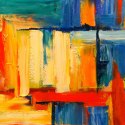
12.29.14 (Tevet 8, 5775) It is a characteristic of our fallen human nature to believe our own "propaganda" – to convince ourselves that we are "right" or "know the truth," when in fact we are fooling ourselves. "Anyone who thinks he is something when he is nothing," said the Apostle Paul, "deceives himself" (Gal. 6:3). We must be vigilant because "the heart is deceitful above all things, and incurably wicked" (Jer. 17:9), and there is a way that "seems right to the heart," but its end is the way that leads to death (Prov. 16:25). We must regularly test our motivations and ask God for the light we need to truly understand the desire of our hearts and to set the direction of our wills. It is written: "Test the spirits (δοκιμάζετε τὰ πνεύματα) to see whether they are of God" (1 John 4:1), and that begins first of all with discerning the truth of our own heart's desire.
יֵשׁ דֶּרֶךְ יָשָׁר לִפְנֵי־אִישׁ
וְאַחֲרִיתָהּ דַּרְכֵי־מָוֶת
yesh · de·rekh · ya·shar · lif·nei · ish
ve'a·cha·ri·tah · dar·khei · ma·vet

"There is a way that seems right to a person,
but its end is the way that leads to death"
(Prov. 16:25)

Download Study Card
We pray for all our needs, but the need to pray with the proper focus, intention, and heart is surely one of our most pressing needs... "Lord, teach us to pray" (Luke 11:1). The disciples were not asking for a formula or a "recipe prayer" (such as might be recited from a prayerbook), but for the right motivation, direction, or the "Torah" of prayer... We are given confidence that if we ask according to his will, God hears us (1 John 5:14), since we are speaking his "language" of truth and humility (the Torah of honesty). Therefore pray for the ability to pray effectively, to commune in trust with your heavenly Father. The prayer of a righteous person has great power (James 5:16).
Note: The emphasis on truth, the Spirit of Truth (רוּחַ הָאֱמֶת), is on relationship with God... We are "in the truth" as we are in relationship with Yeshua, and all that we are is mediated by His presence within our hearts... As we relate to ourselves, to others, to the world around us, even to our enemies, so we relate through Him.... He is the Center of truth, and without him we exist in untruth. For more on this topic see "Derekh HaYashar."
 |
The Desire of Love...

12.28.14 (Tevet 7, 5775) "If you love me, you will keep my commandments..." (John 14:15). The logical contrapositive statement is, "if you do not keep my commandments, you do not love me." Our struggle to obey is really a struggle of the heart to love, or to trust that we are beloved. We can read Yeshua's words with prophetic hope, however: "When you love me, you will keep my commandments." In other words, as you love Yeshua and know his heart, you will fulfill his Torah, since the love of God is the gateway of all true obedience.
Your Heavenly Father sees in secret... "The deepest thing in our nature is this region of heart in which we dwell alone with our willingnesses and our unwillingnesses, our faiths and our fears" (William James). It is there, in the secret place of the heart, where the sound of the "knock" is either heard or disregarded (Rev 3:20). May the Lord give us the willingness to do His will and the courage to believe in His love; may he deliver us from doubt and from every other fear. And may we all be strong in faith, not staggering over the promises, but giving glory to God for the miracle of Yeshua our LORD.
"Lord, when I feel lost, remind me again how you have found me, how you have prepared a place for me, and that your love is all I really need to be home... If I must suffer, please let it neither embitter nor shatter me. If I cry out in protest or despair, accept my heartache and grant me your compassion and comfort. When my faith falters, reveal to me that you are always near. Help me, Yeshua, to chose life this day. Amen."
 |
New Year Assumptions...

12.28.14 (Tevet 7, 5775) Often we don't realize what is not being said because of what is being said. In other words, hidden or unspoken assumptions are always at work in communication, though we rarely take the time to examine these assumptions for ourselves. Advertisers, politicians, and others who wish to control your thinking implicitly understand this and therefore regularly employ various techniques to distract you from examining their assumptions. They understand that the louder (or more frequently or more threateningly) something is said, the less likely you will question its truth status or engage in reasonable thinking of your own.... In other words, "truth" for such pragmatists is little more than persuasion. Get the crowd to believe you and you've got the "truth."
For example, in most countries of the world, "New Year's Day" is usually celebrated on January 1st, though this date comes from the arbitrary decree of the consuls of ancient (and pagan) Rome -- certainly not from anything taught in the Torah and the Hebrew Scriptures. According to Torah, however, there are two mirroring "New Years" observed during the year. The first occurs two weeks before Passover (Nisan 1) and the second occurs ten days before Yom Kippur (Tishri 1). The first is called Rosh Chodashim (see Exod. 12:2), which commemorates the month of the redemption of the Jewish people (i.e., the month Yeshua was sacrificed for our sins), whereas the second is called Yom Teru'ah that is associated with the "Feast of Ingathering" at the "end of the year" (Exod. 23:16, 34:22). Later Yom Terua'h became known as Rosh Hashanah ("the head of the year") which began a ten-day "trial" of humanity climaxing on the Day of Atonement (Yom Kippur).
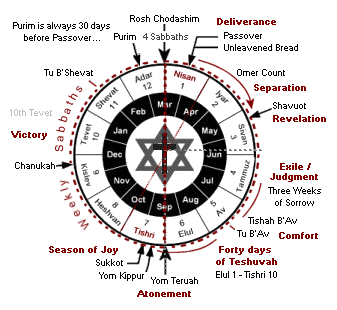 |
The two "new years" of the Jewish calendar mirror each other and reveal the two advents of Messiah. For more on the secular New Year and its relationship to the calendar of Torah, see the page, "The Gregorian Calendar and Pagan Assumptions."
Vayechi - "And He Lived"
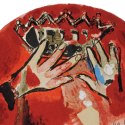
[ Happy Holidays, friends... Our Torah reading for this week is Parashat Vayechi, the final portion from the Book of Genesis, which includes Jacob's great prophecy of the coming Messiah. ]
12.28.14 (Tevet 7, 5775) Our Torah reading for this week, parashat Vayechi (ויחי), recounts how the great patriarch Jacob adopted Joseph's two sons (Ephraim and Manasseh) as his own children. When Jacob blessed the boys, however, he intentionally reversed the birth order by putting the younger before the older, signifying that the old struggle he had faced as a child was over, and he now understood things differently. And note Ephraim and Manasseh's reaction: the older did not envy the younger, nor did the younger boast over the older. The family had apparently learned that blessing from God is for the good of all, and that there is no real blessing apart from genuine humility that esteems the welfare of others. Jacob was now ready to summon his family to hear his final words. Among other things, he foretold how the Messiah would come from the line of Judah and then instructed his sons to bury him only in the promised land, and not in Egypt.
After his death, Joseph and his brothers, with various dignitaries of Egypt, formed a funeral procession and returned to Canaan to bury Jacob in the Cave of Machpelah in Hebron. After the funeral, they returned to Egypt, but Joseph's brothers feared that he would now repay them for their former betrayal and threw themselves on his mercy. Joseph reassured them that they had no reason to fear him and reminded them that God had overruled their earlier intent by intending him to be a blessing to the whole world.
The portion ends with the account of the death of Joseph, who made the sons of Israel promise to take his bones with them when the LORD would bring them back to the land of Canaan (alluding to the great Exodus to come). Joseph's faith in the Jewish people's return to the Promised Land is summarized by his statement: "God will surely remember you." He died at age 110, was embalmed and placed in a coffin in Egypt, full of faith that he would be raised from the dead in the land promised to Abraham, Isaac, and Jacob.
For more information, please read the Torah summary page for Vayechi and its related articles. You can also download the Shabbat "Table Talk" for the portion here:
Note: This Shabbat we finish reading the Book of Genesis (סֵפֶר בְּרֵאשִׁית) for the current Jewish year... This inestimably great book begins with an account of the creation of the universe by the LORD and ends with Joseph being put into a coffin in Egypt. Note that the word translated "coffin" is the Hebrew word aron (אֲרוֹן), a word used elsewhere in the Torah to refer exclusively to the Ark of the Covenant (the ark that Noah built and the ark that Moses was placed in are both called "teivah"). Throughout their desert wanderings after the Sinai revelation, the Israelites actually carried two special arks - one holding the bones of Joseph and the other holding the tablets of the Ten Commandments.
The Blessing of Shalom...

[ Happy Holidays, chaverim! And may God give you the great blessing of His peace! ]
12.26.14 (Tevet 5, 5775) "May the LORD lift up his face upon you and give you peace" (Num. 6:26). May the LORD "lift up his face" (יִשָּׂא יְהוָה פָּנָיו) toward you in welcome, and may his countenance be radiant with joy over you. May his face be "toward you," not turned away or hidden... When God turns toward you, he imparts the blessing without which all other blessings are beholden, namely, his peace (i.e., shalom). After all, what good is worldly prosperity or temporal pleasure apart from God's blessing of peace? To have shalom (שָׁלוֹם) is to be made shalem (שָׁלֵם) – made whole, complete, secure, happy – and therefore the peace of God (שְׁלוֹם הָאֱלהִים) is assuredly the most essential blessing.
יְבָרֶכְךָ יְהוָה וְיִשְׁמְרֶךָ
יָאֵר יְהוָה פָּנָיו אֵלֶיךָ וִיחֻנֶּךָּ
יִשָּׂא יְהוָה פָּנָיו אֵלֶיךָ וְיָשֵׂם לְךָ שָׁלוֹם
ye·va·re·khe·kha Adonai ve·yish·me·re·kha;
ya·eir Adonai pa·nav e·ley·kha vi·chun·ne·ka;
yis·sa Adonai pa·nav e·ley·kha ve·ya·sem le·kha sha·lom

"The LORD bless you and guard you;
The LORD make his face to shine upon you and be gracious to you;
The LORD lift up his countenance upon you and give you peace."
(Num. 6:24-26)

Download Study Card
As I've mentioned before, the text of the great priestly blessing (Num. 6:24-26) begins with three words, is comprised of three parts, invokes the divine Name three times, and is therefore quite appropriately called "the three-in-one blessing." Notice that it is phrased in the singular rather than plural because it is meant to have personal application, not to be a general benediction over a crowd of people. The blessing, in other words, is directed toward the individual heart of faith.
Those who trust in God's salvation are given objective shalom, as it is written: "since we have been justified by faith, we have peace with God through our Lord Yeshua the Messiah" (Rom. 5:1). This is the reconciliation that God effected through the cross of Yeshua for our atonement (Rom. 5:11). God's love makes our eternal peace real, secure, and finished... There is also a subjective side of peace, however, that is a fruit of the Spirit of God: "But the fruit of the Spirit is peace..." (Gal. 5:22). This is the inner peace that we experience by trusting in God's care for our lives, despite our struggles; such peace comes when we allow the Spirit of God to reign within our hearts by faith (Phil. 4:7; Col. 3:15).
Shabbat shalom, chaverim, and "may the peace of God, which surpasses all understanding, guard your hearts and your minds in Yeshua our Messiah" (Phil. 4:7).
 |
Return from Captivity...

12.26.14 (Tevet 5, 5775) "The LORD your God will return as you return, and will have mercy upon you, turning to gather you back..." (Deut 30:3). This has both a present and prophetic application. First, in the present hour, if you turn to God, he will show you compassion, and he will "gather back" all those distant and fragmented parts of yourself into shalom and wholeness. He will restore your lost days; he will bring you out of exile and give you comfort in Yeshua: "Draw near, therefore to God, and he will draw near to you" (James 4:8). Second, the LORD will return to earth as the Jewish people return from their captivity, and he will restore Zion during the time of the final redemption. The LORD will turn captivity into mercy; he will turn in his compassion to his people. As it is written: "I will be found by you, declares the LORD... and I will bring you back..." (Jer. 29:14).
The language of the Torah here is emphatic: "even if your exile is at the farthest edge of heaven (בִּקְצֵה הַשָּׁמָיִם), from there the LORD your God will gather you..." (Deut. 30:4). Note that this prophecy is written in the singular and therefore pertains to each individual exile. God will "gather you," that is, he bring you back to make you whole. Even if your exile (singular) is to the uttermost, the LORD will take you and deliver you, as it is written, "He is able to save to the uttermost (σῴζειν εἰς τὸ παντελὲς) those who draw near to God through him, since he always lives to make intercession for them" (Heb. 7:25).
Note: I am grateful the holidays are finally over, since they can be exhausting and even distracting! Shalom and love to you all!
 |
The Humility of God...

12.24.14 (Tevet 3, 5775) Consider the absolute humility of God as He chose to enter into this world as "baby Jesus." Meditate on the glory and sheer paradox of God's love! "Baby Jesus" is the perfect disguise to hide the truth from the proud eyes of the flesh, though the humble of heart can see... What would do without the gift of God, friends? What hope would we have? Regardless of the exact date of his birth, thank God that our LORD and Messiah was willing to be born into this dark world to offer Himself as our sacrificial Redeemer! Happy Holidays and Merry Christmas, chaverim!
"Let the children come to me; do not hinder them, for to such belongs the kingdom of God. Truly, I say to you, whoever does not receive the kingdom of God like a child shall not enter it." - Mark 10:14-15
"Truly, I say to you, unless you turn (στραφῆτε) and become like children, you will never enter the kingdom of heaven." - Matt. 18:3
Zot Chanukah...
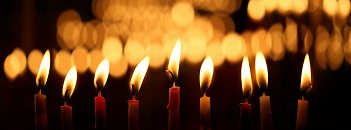
[ From our family to you - may you be filled with peace, love, and the true light that only the Messiah Yeshua can give... Happy Chanukah! ]
12.23.14 (Tevet 2, 5775) Tonight is called "zot Chanukah," the last night of the festival when we will light all nine of the candles in the Chanukah menorah. Zot chanukah derives its name from the Torah reading for the 8th day, which sums up the gifts given to dedicate the Tabernacle (Num. 7:84). The Hebrew reads, זאת חֲנֻכַּת הַמִּזְבֵּחַ בְּיוֹם הִמָּשַׁח אתוֹ / "This is the dedication (chanukah) of the altar, in the day of its being anointed..." Notice that the Hebrew words for dedication, altar, and mashiach (messiah) all appear in this verse.
Zot Chanukah (click for larger)
Turning to See...

12.23.14 (Tevet 2, 5775) During the holiday of Chanukah we kindle lights, but we do not to use these lights for profane purposes: We are simply to behold them, to see something amazing, and to be touched by the light... There is no place where God is not present, and indeed the name YHVH (יהוה) means "Presence" (הָיָה וְהוֶה וְיָבוֹא). God showed himself in the midst of a common thornbush as a fire that does not burn. Moses "turned aside" to see the bush, which means he looked past the layer of the common, the profane, and the ordinary, to see the uncommon, the sacred, and the extraordinary. We light our menorah; we see the flames rise upward - like thorns on a thornbush - and we may catch a glimpse of God's radiance, if we "turn aside" to see... When we slow down, when we make room within our hearts for God - a sanctuary within - we will often see what is commonly overlooked.
When we look at something, we often do not see it because we are looking somewhere else – looking past the present moment by reliving the past or by anticipating the future. This is why we must learn to sanctify the moments of our lives by offering blessings and prayers, observing the mo'edim, and so on, because doing so helps us "pause" to see what is right before us, right now... May God help us turn and see, chaverim. Happy Chanukah!
Personal note: Please keep Hebrew for Christians in your prayers, friends, as this has been an especially difficult time for this ministry. Thank you so much.
 |
Joseph as a picture of Messiah

[ The following is related to this week's Torah reading, Parashat Vayeshev... ]
12.23.14 (Tevet 2, 5775) More chapters of Torah are devoted to the life of Joseph than to the account of creation, the story of Adam and Eve, the flood of Noah, the call of Abram to the promised land, the miraculous birth and (near) sacrifice of Isaac, the transformation of Jacob into Israel, and so on. Joseph is given such prominence in Scripture because his life depicted both the Suffering Servant (Yeshua's first advent) and the One who reigns at the right hand of the power on high and delivers Israel (Yeshua's second advent). The life of Joseph provides a "prophetic outline" of Yeshua the Messiah.
Jewish tradition sometimes refers to two redeemers, each being called "Messiah" (i.e., Mashiach: מָשִׁיחַ). Both of these redeemers are involved in delivering the Jewish people from galut (exile) and ushering in the long-awaited Messianic era. These two Messiahs are called Mashiach ben David (מָשִׁיחַ בֶּן־דָוִד), "the Messiah the descendant of David," and Mashiach ben Yosef (מָשִׁיחַ בֶּן־יוֹסֵף), "the Messiah the descendant of Joseph," respectively.
When (rabbinically-trained) Jews typically think of "the" Messiah (i.e., ha-mashiach: הַמָּשִׁיחַ), however, they generally have in mind Mashiach ben David of the tribe of Judah who shall rule in the Messianic age. Mashiach ben Yosef is said to be of the tribe of Ephraim (son of Joseph), and is also sometimes called Mashiach ben Ephraim (Bavli Sukah 52b). Mashiach ben Yosef will come first, before the advent of Mashiach ben David, to prepare the world for the coming of the kingdom of the LORD. He will fight God's wars (against "Edom," collectively understood as the enemies of Israel) in a time preceding the fulfillment of the Messianic Kingdom (this is sometimes referred to as Ikvot Mashiach, the "footsteps of the Messiah").
The rabbis derive this understanding of Mashiach ben Yosef from their exegesis of Obadiah 1:18: "The house of Jacob shall be a fire, and the house of Joseph a flame, and the house of Esau stubble; they shall burn them and consume them, and there shall be no survivor for the house of Esau, for the LORD has spoken." Moreover, they understand the confrontation between the "house" of Joseph and the "house" of Esau to be prefigured in the birth of Joseph himself, where Rachel indicated that God would "add a son" (i.e., ben acher: בֵּן אַחֵר) who would be anointed for battle in the End of Days (midrash on Gen. 30:24).
Note: For more on this subject, including 60 ways in which Joseph prefigured the advent of Yeshua the Messiah, see "Mashiach ben Yosef."
 |
The Substance of Hope...
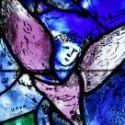
12.23.14 (Tevet 2, 5775) It is written that faith is the "substance" (ὑπόστασις) of hope, the conviction of unseen blessing, and "without faith it is impossible to please God, for whoever would draw near to God must believe that he exists and that he rewards those who seek him" (Heb. 11:6). Life in this world is likened to a school wherein we learn how great God is and how much we are loved, valued, and esteemed precious in His eyes. You must believe that God is your healer, that he will make the crooked things straight, and that you are his beloved child... Faith sees the end in God's unfailing love: The LORD God of Israel says: "And I will lead the blind in a way that they do not know, in paths that they have not known I will guide them. I will turn the darkness before them into light, the rough places into level ground. These are the things I do, and I do not forsake them."
וְהוֹלַכְתִּי עִוְרִים בְּדֶרֶךְ לא יָדָעוּ
בִּנְתִיבוֹת לא־יָדְעוּ אַדְרִיכֵם
אָשִׂים מַחְשָׁךְ לִפְנֵיהֶם לָאוֹר
וּמַעֲקַשִּׁים לְמִישׁוֹר
אֵלֶּה הַדְּבָרִים עֲשִׂיתִם וְלא עֲזַבְתִּים
ve·ho·lakh·ti · iv·rim · be·de·rekh · lo · ya·da·u
bin·ti·vot · lo · ya·du · ad·ri·khem
a·sim · mach·shakh · lif·ne·hem · la·or
u·ma·a·ka·shim · le·mi·shor
el·lah · ha·de·va·rim · a·si·tim · ve·lo · a·zav·tim

"And I will lead the blind in a way that they do not know,
in paths that they have not known I will guide them.
I will make dark places before them turn to light,
and perverse things into uprightness.
These things I will do, and I will not forsake them."
(Isa. 42:16)

Hebrew Study Card
Faith is its own reward, since believing the truth brings you into alignment with reality. Teshuvah is the response to God's love... Faith confesses that God is your Ultimate Concern, your Supreme Good, the goal and end of all that matters to your heart. Your faith is "more precious than gold," because its heart is your highest blessing, namely, the Divine Presence, the beatific reality, and heaven itself.... God tests our faith to draw our attention to Him (Psalm 119:71); to teach us endurance (Rom. 5:3-5; James 1:4); to upbuild our soul (Jude 1:20); to purify our affections (1 Pet. 1:7), and to glorify God's Name (kiddush HaShem). May God help each of us hold the substance of real hope within our hearts. Amen.
Yeshua our Light...

12.23.14 (Tevet 2, 5775) In the Gospel of John it is recorded that Yeshua said, "I am the way, the truth, and the life" (John 14:6). The Greek word translated "truth" in this verse is aletheia (ἀλήθεια), a compound formed from an alpha prefix (α-) meaning "not," and lethei (λήθη), meaning "forgetfulness." Truth is therefore a kind of "remembering" of something forgotten; a recollecting of what is essentially real. Etymologically, the word aletheia suggests that truth is also "unforgettable" (i.e., not lethei), that is, it has its own irresistible "witness" to reality. People may lie to themselves, but ultimately the truth has the final word. "The light shines in the darkness, and the darkness has not overcome it" (John 1:5).
Greek scholars have noted that the word lethei itself is derived from the verb lanthano (λανθάνω), which means "to be hidden," so the general idea is that a-letheia (i.e., truth) is non-concealment, non-hiddenness, or to put it positively, revelation or evident disclosure. Thus the word of Yeshua - His message, logos (λόγος), revelation, and presence - is both "unforgettable" and irrepressible. Yeshua is the Unforgettable One that has been manifest as the express Word of God (דְּבַר הָאֱלהִים). He is the Light of the world (אוֹר הָעוֹלָם) and the one who gives us the "light of life" (John 8:12). Though God's message may be suppressed by willful ignorance and darkened thinking, the truth is regarded as self-evident and full of intuitive validation (see Rom. 1:18-21).
The Hebrew word for truth (i.e., emet: אֱמֶת) comes from a verb (aman) that means to "support" or "make firm." There are a number of derived nouns that connote the sense of reliability or assurance (e.g., pillars of support). The noun emunah (i.e, אֱמוּנָה, "faithfulness" or "trustworthiness") comes from this root, as does the word for the "faithful ones" (אֱמוּנִים) who are "established" in God's way (Psalm 12:1). A play on words regarding truth occurs in the prophet Isaiah: אִם לא תַאֲמִינוּ כִּי לא תֵאָמֵנוּ / im lo ta'aminu, ki lo tei'amenu: "If you are not firm in faith, you will not be firm at all" (Isa. 7:9; see Faith Establishes the Sign). Without trust in the LORD, there is no stability... Truth is something trustworthy, reliable, firm, or sure. In colloquial English, for example, this idea is conveyed when we say, "He's a true friend...", indicating that the loyalty and love of the person is certain. The familiar word "amen" likewise comes from this root. Speaking the truth (dibbur emet) is considered foundational to moral life: "Speak the truth (דַּבְּרוּ אֱמֶת) to one another; render true and perfect justice in your gates" (Zech. 8:16). Yeshua repeatedly said, "Amen, Amen I say to you...." throughout his teaching ministry to stress the reliability of God's truth (Matt. 5:18, 26, etc.). Indeed, Yeshua is called "the Amen, the faithful and true witness" (Rev. 3:14).
The relationship between the Hebrew and the Greek ideas seems to be that the revelation of God - the aletheia - is reliable and strong. The source for all truth is found in the Person and character of the LORD God of Israel, blessed be He... The self-disclosure of the LORD is both unforgettable - both in the factual and moral sense - as well as entirely trustworthy. Aletheia implies that truth is something that should never be forgotten. Hence we are regularly commanded and encouraged not to "forget" the LORD (Deut. 8:11, Psalm 103:2, etc.), to "remember" his covenants, to "keep" his ways, to "guard" His precepts, and so on.
So, do you have ohr ha-chayim (אוֹר הַחַיִּים), "the light of Life," shining within your heart? For this Chanukah season - and always - may we find courage and remember what is written: "The LORD is my light and my salvation (i.e., my Yeshua); whom shall I fear? The LORD is the refuge of my life; of whom shall I be afraid?"
יְהוָה אוֹרִי וְיִשְׁעִי מִמִּי אִירָא
יְהוָה מָעוֹז־חַיַּי מִמִּי אֶפְחָד
Adonai · o·ri · ve·yish·i · mi·mi · i·ra?
Adonai · ma·oz · chai·yai · mi·mi · ef·chad?

"The LORD is my light and my salvation (i.e., my Yeshua), whom shall I fear?
The LORD is the refuge of my life, of whom shall I be afraid?"
(Psalm 27:1)

Download Study Card
Note: Tertullian asked: "What does Athens have to do with Jerusalem?" Chanukah is about the age-old conflict between darkness and light, the struggle between a "worldview" that worships humanity and a worldview that worships transcendental, moral, purposive Reality that is revealed as the LORD, the Source, Savior, and Redeemer of the world. The ancient Greeks defined the good in terms of the humanly beautiful, whereas the Hebrews understood the humanly beautiful in terms of God's revealed good.
Trust Despite Darkness...

12.22.14 (Tevet 1, 5775) Despite the horrendous evils that we regularly see in this fallen world - both the moral wickedness of depraved sinners as well as the physical tragedies of natural disasters, of sicknesses, and of physical death itself - there is something within the human heart - the cry of love's protest - that appeals to God's love and justice despite our pain... The soul testifies that there is "unfinished business," that there is more than meets the eye, that evil will not have the last word, and that tears will one day forever be wiped away. Despite the ambiguity, faith "hopes against hope" that the LORD God will intervene and bring everlasting healing to us all. As it says, "Let him who walks in darkness and has no light trust in the Name of the LORD (יִבְטַח בְּשֵׁם יְהוָה) and rely on his God."
מִי בָכֶם יְרֵא יְהוָה שׁמֵעַ בְּקוֹל עַבְדּוֹ
אֲשֶׁר הָלַךְ חֲשֵׁכִים וְאֵין נגַהּ לוֹ
יִבְטַח בְּשֵׁם יְהוָה וְיִשָּׁעֵן בֵּאלהָיו
mi va·khem ye·rei Adonai sho·mei·a be·kol av·do
a·sher ha·lakh cha·she·khim ve·ein no·gah lo
yiv·tach be·shem Adonai ve·yi·sha·en be·lo·hav

"Who among you fears the LORD and obeys the voice of his servant?
Let him who walks in darkness and has no light
trust in the Name of the LORD and rely on his God."
(Isa. 50:10)

Hebrew Study Card
Faith is a sort of "holy protest" over the state of the world: "How long, O LORD, forever?" Eventually God will wipe away every tear and make all things right... Bittachon (trust) is a word for this world, which says, "Though he slay me, I will trust in him..." Those who call upon the LORD can trust not only in concealed good behind ambiguous appearances ("all things work together for good") but also in a future, real, substantive good that will one day be clearly manifest for us all. Meanwhile, may God keep us from such depth of sorrow that leads to sickness, darkness and despair. Chanukah Sameach v'Chodesh Tov, chaverim.
The Birth of Messiah...

12.22.14 (Tevet 1, 5775) Though the world corrupts the message of the birth of Messiah for the sake of its greed, take a moment to reflect on its ongoing spiritual significance, namely, that God empties Himself of His regal glory and power to become your High Priest, able to fully sympathize with your weakness, frailty, shame, and chronic sinfulness (Heb. 4:15-16; Phil 2:7-8). Almighty God, the Presence of Love, the Heart of God, clothed himself in human flesh and bone to become Immanuel (עִמָּנוּ אֵל) - "one with us" - so that we could be touched by Him, healed by Him, saved by Him... Therefore let's join the refrain of heavenly host: "Glory to God in the highest, and upon earth peace, among men - good will."
כָּבוֹד לֵאלהִים בַּמְּרוֹמִים
וְשָׁלוֹם עֲלֵי אֲדָמוֹת בְּקֵרֵב אַנְשֵׁי רְצוֹנוֹ
ka·vod · le·lo·him · ba·me·ro·mim
ve·sha·lom · a·lei · a·da·mot · be·ke·rev · an·shei · re·tzo·no

"Glory to God in the highest,
and upon earth peace, among men - good will."
(Luke 2:14)

Hebrew Study Card
Consider the absolute humility of God by choosing to enter into this world as "baby Jesus." Meditate on the glory and sheer paradox of God's love! "Baby Jesus" is the perfect disguise to hide the truth from the proud eyes of the flesh, though the humble of heart can see... What would do without the gift of God, friends? What hope would we have? Regardless of the exact date of his birth of His birth, thank God that our LORD and Messiah was willing to be born into this dark world to offer Himself as our sacrificial Redeemer!
What do we do, then, if we sincerely seek to follow the Torah's calendar in light of entrenched Christian customs? Well, we certainly may commemorate the birth of Messiah during the holiday of Sukkot (or Passover, etc.), though we must be careful to show charity and use the "good eye" toward those who may adhere to the traditional date for "Christmas." Likewise we commemorate the death and resurrection of Messiah during Passover and Firstfruits, respectively, though we do not begrudge those of good faith who honor these great events of salvation during what they call the "Easter" season. Often we are tested in exactly this way, chaverim! We must not miss the "weightier matters" of extending love to others, as Yeshua clearly taught (Matt. 23:23). Moreover it is written, "Let every man be fully persuaded in his own mind" (Rom. 14:5; Col. 2:16). Friends, we must test the spirits -- and that includes our own! How do we treat the "stranger" among us? How do we regard the "weaker brother?" Do we demand that our doctrine be esteemed, or do we allow room for others to seek the Lord and his wisdom? Ask yourself: Does this person (or group) honor Yeshua as God the Son, the Redeemer of Humanity who died for our sins and rose from the dead? If so, then keep your heart warm and soft toward him, even if he has yet to discover the Jewish roots of their faith. "Strive for peace with everyone" (Heb. 12:14). "Let those of us who are mature think this way, and if in anything you think otherwise, God will reveal that also to you" (Phil. 3:15). Though we desire unity with one another (John 17:11), we cannot insist on doctrinal uniformity. The truth is known in humility and love.
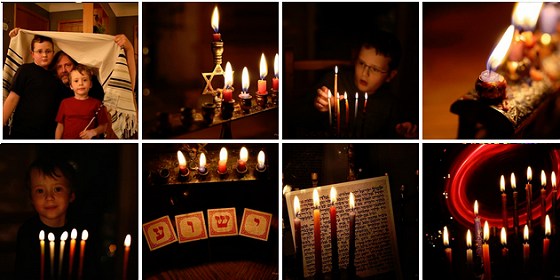 |
Chanukah Days 4-5 (click for larger)
The Providential Prince...

[ Our Torah reading for Christmas week is parashat Vayigash... ]
12.22.14 (Tevet 1, 5775) Though Joseph was given great wisdom to interpret Pharaoh's dreams and to serve as Egypt's steward, his foresight did not prevent the famine from coming in the first place, and the testing that came was part of God's hidden plan. The role of the true prophet is to bear witness to God's truth and to shepherd God's people through the unfolding vision. Joseph could not control the outcome, though he worked within the context of revelation to bring about deliverance. In both the "fat times and the lean" we look to God for comfort and strength: We "show up" every day to ready ourselves for what is coming, even if we currently find ourselves in darkness. We refuse fear because we trust that the LORD our God is guiding our way...
The term hashgachah pratit (הַשְׁגָּחָה פְּרָטִית) refers to God's personal supervision of our lives (hashgachah means "supervision," and pratit means "individual" or "particular"). Since He is the Master of the Universe, God's supervision and providence reaches to the smallest of details of creation - from subatomic particles to the great motions of the cosmos. God not only calls each star by its own name (Psalm 147:4), but knows each particular wildflower and sparrow (Matt. 6:28-30, 10:29). Each person created in the likeness of God is therefore under the direct, personal supervision of God Himself -- whether that soul is conscious of that fact or not. As Yeshua said, even the hairs on your head are all numbered (Matt. 10:30). The God of Israel is called אלהֵי הָרוּחת לְכָל־בָּשָׂר / Elohei ha-ruchot lekhol-basar: "The God of the spirits of all flesh" (Num. 16:22), and that means He is LORD even over those who vainly attempt to suppress His Presence and reality (Rom. 1-19-20).
Note: For more on this see "Joseph and the Good Eye."
 |
His Star Still Shines...

12.21.14 (Kislev 30, 5775) Though the promised birth of Yeshua may have occurred during the holiday of Sukkot (Tabernacles), with the incarnation occurring during Chanukah (the Festival of Light), many people of good faith observe the traditional date of December 25th. Regardless of your particular conviction surrounding the date of Messiah's birth, however, the most important point is that he was born to die (Heb. 10:5-7). Indeed, the story of his birth is only significant in relation to His sacrificial death (Mark 8:27-33). The "manger" scene leads directly to the cross. That's the old "gospel story" itself, that "God so loved the world that He gave His only begotten Son, that whoever believes in Him should not perish but have eternal life" (John 3:16). This matter is of "first importance," namely that Yeshua was born to die for our sins, to make us right with God, and was raised from the dead to vindicate the righteousness of God (1 Cor. 15:3-5). His birth (or rather His incarnation) was the "first step" toward His sacrifice for our deliverance (Heb. 2:9-18).
And while "Christmas" is customarily the time that many people observe the birth of the Savior, it is surely appropriate to celebrate Yeshua's glory as our risen King and Lord every day of our lives.... Therefore I sincerely wish each and every one of you a wonderful Christmas Season. May we all take time to reflect upon the profound gift of the One who was so great that He emptied Himself (κένωσις) of all His regal glory and power to be clothed in human flesh in order to die as our sin offering before the Father.
Note: For some (hopefully peaceful) discussion about possible birth dates for Yeshua, see "Was Jesus born on December 25th?" For traditional Christmas readings from the New Testament, see Matt. 1:18-2:12, Luke 1:26-2:20.
 |
The Revelation of Joseph...

[ Our Torah reading for Christmas week is parashat Vayigash... ]
12.21.14 (Kislev 30, 5775) In our Torah portion this week, Benjamin stood before Joseph accused of the theft of a chalice, while Judah "drew near" (vayigash) and offered to bear the penalty for his brother, pleading with Joseph to spare his father the loss of yet another son. Joseph was so moved by Judah's act of mesirat nefesh (self-sacrifice) that he decided the time had finally come for him to reveal his identity to his brothers. After clearing the room, he began speaking in Hebrew and said, אֲנִי יוֹסֵף הַעוֹד אָבִי חָי, "I am Joseph, is my father still alive?" When the brothers drew back in shock and dismay, Joseph said, "Draw near to me, please" (from the same verb nagash) and then explained how God providentially brought him to Egypt to save the family's life....
The revelation of Joseph and his reconciliation with his brothers is a prophetic picture of the acharit hayamim (end of days) when the Jewish people will come to understand that Yeshua is indeed the One seated at the right hand of the majesty on high as Israel's Deliverer. At that time Yeshua will speak comforting words to His long lost brothers and restore their place of blessing upon the earth. Indeed, the entire story of Joseph is rich in prophetic insight regarding our Lord and Savior. Vayigash (וַיִּגַּשׁ) means "and he drew near," referring first to Judah's intercession for the sins of his brothers, and then to Joseph's reciprocal desire for the brothers to draw near to him (Gen. 44:18, 45:4). Joseph initiated the reconciliation by saying, גְּשׁוּ־נָא אֵלַי / g'shu na elai - "Please draw near to me," and indeed there is a play on the verb nagash (נָגַשׁ), "draw near," throughout this story. Yeshua is depicted both in Judah's intercession (as the greater Son of Judah who interceded on behalf of the sins of Israel) and in Joseph's role as the exalted Savior of the Jewish people in time of tribulation. When Joseph disclosed himself and asked, "Is my father alive," we hear Yeshua evoking the confession of faith from the Jewish people: "I am Yeshua: do you now understand that My Father is alive?" Upon His coming revelation, all Israel will confess that indeed God the Father is "alive" and has vindicated the glory of His Son.
Note: For more information, please read the Torah summary page for Vayigash and its related articles. You can also download the Shabbat "Table Talk" for the portion here:
Rosh Chodesh and Winter Solstice...
Note: Tonight at sundown is Rosh Chodesh Tevet, the Winter Solstice, and the shortest day of the year... Chodesh Tevet marks the 10th month of the Torah's calendar (counting from the first month of Nisan). This was the fateful month that Nebuchadnezzar king of Babylon besieged Jerusalem before the Temple was destroyed in 586 BC (2 Kings 25:1; Jer. 39:1; Ezek. 24:1-2). The name of the tenth month is explicitly called Tevet (טֵבֵת) in the Scriptures (see Esther 2:16). Rosh Chodesh Tevet is sometimes observed as one day and sometimes as two, because the preceding month (Kislev) is sometimes "full" (consisting of 30 days) and sometimes deficient (consisting of only 29 days). With a two-day Rosh Chodesh, the first day is the 30th day of the preceding month (i.e., Kislev 30th), and its second day is the first day of the following month. Chodesh Tov, chaverim!
A Great Miracle Happened...

[ This evening at sunset begins the Sabbath of Chanukah week... Shabbat shalom friends! ]
12.19.14 (Kislev 27, 5775) Each side of a dreidel (a four-sided spinning top used for Chanukah) has a different letter of the Hebrew alphabet: Nun (נ), Gimmel (ג), Hey (ה), and Shin (שׁ), which together form the acronym, Nes Gadol Hayah Sham (נֵס גָדוֹל הָיָה שָׁם) – "a great miracle happened there," referring to the victory of the Macabees. In Israel, however, the letter Shin is replaced with the letter Pey (פּ) to form the acronym, Nes Gadol Hayah Poh (נֵס גָדוֹל הָיָה פּה), meaning "a great miracle happened here," referring to Temple and the land of Israel. Because Chanukah represents Yeshua, the true Light of the World, we likewise can say: Nes Gadol Hayah Poh, "a great miracle happened here," referring to the Temple of our hearts, when the Light of the LORD overcame our darkness and gave us everlasting hope and consolation...
Thank God that after Yeshua was crucified and died for our transgressions, the parochet in the Temple (i.e, the veil separating the Holy of Holies from the rest of the Temple) was torn from top to bottom, thereby opening the way of access to the Divine Presence for all who are willing to come in faith... The light of God's love now shines for us all!
 |
Waking Up to the Light...

[ The following is related to the holiday of Chanukah... ]
12.19.14 (Kislev 27, 5775) Some people seem to sleepwalk through their days, without ever waking up... They miss life's wonder; they close their eyes to the Divine Presence; they shun asking the "big questions" because this disturbs their prejudices; indeed, they would rather be entertained, mesmerized, and rendered unconscious. Many people prefer to be put under a hypnotic spell than to be brought back to reality; they actually want their illusions and virtual lives! The first step of deliverance is to confess that we are asleep, and that we prefer sleep to opening our eyes to the truth. As it is written, "it is light that makes everything visible; therefore it says, "Awake, O sleeper, and arise from the dead, and the Messiah will shine on you" (Eph. 5:14). Arise and shine, for your light has come:
קוּמִי אוֹרִי כִּי בָא אוֹרֵךְ
וּכְבוֹד יְהוָה עָלַיִךְ זָרָח
ku·mi o·ri ki va or·rekh
ukh·vod Adonai a·la·yikh za·rach

"Arise, shine, for your light has come,
and the glory of the LORD has risen upon you."
(Isa. 60:1)

Hebrew Study Card
It is not easy to wake up, to rouse ourselves, to find focus, concentration, "kavanah," - and yet spiritually speaking it is essential. Hence Yeshua repeatedly asked his disciples: "Do you now believe?" May God have mercy upon us and help us arise to behold His glorious light!
Chanukah Day 3 (click for larger)
Teshuvah's Like-for-Like...

[ Our Torah reading for the Shabbat of Chanukah is parashat Miketz, i.e., Gen. 41:1-44:17. ]
12.19.14 (Kislev 27, 5775) It is said that genuine teshuvah (repentance) is evident when a person is confronted with the same temptation to which he previously succumbed, but successfully withstands the test and resists. Joseph's brothers demonstrated teshuvah when they refused to abandon their father's favorite son to the "pit" of an Egyptian prison cell (Gen. 44:16-17). Once the brothers offered to suffer the same fate as falsely accused Benjamin, Joseph knew they had repented and were no longer the same people who had betrayed him when he was a young man...
Note that next week we will read how Judah offered to sacrifice his life for his brother, and this act led to the revelation of Joseph...
God's Healing Light...

12.18.14 (Kislev 26, 5775) Happy Chanukah, friends! The Torah records that God's first words were: "Let there be light" (i.e., yehi or: יְהִי אוֹר) and then states that "God separated (וַיַּבְדֵּל) the light from the darkness (Gen. 1:3-4). It is this "separation," or distinction, that is foundational to the concept of kedushah (קְדֻשָּׁה), or "holiness," a word that first appears regarding the distinction between ordinary and sacred time: "God blessed the seventh day and made it holy" (יְקַדֵּשׁ) because on it God rested from all his work that he had created to do" (Gen. 2:3). Likewise we are called away from the darkness to come into the divine light. Indeed the very purpose of salvation is "to turn from darkness to light and from the power of Satan to God" (Acts 26:18). Hashivenu, Adonai...
When the darkness seems to enshroud your way, pray for God's light to be rekindled within your soul. Keep faith that your gloom will soon pass, and that darkness and despair will not be your final end. Your mourning will find its comfort, your tears will be wiped away, and your grief will find its solace... Ask God to transform your heartache into the holy resolve to live and die for the truth of His great love.
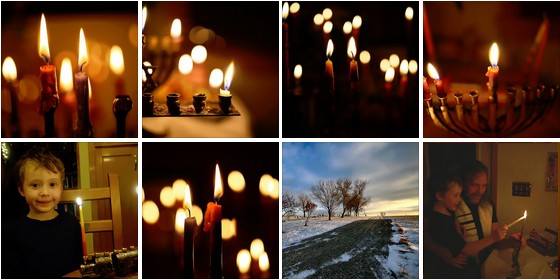 |
Chanukah Day 2 (click for larger)
The Light Still Shines...
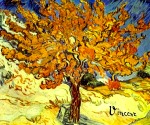
[ The following is related to the holiday of Chanukah, which began last night at sundown... ]
12.17.14 (Kislev 25, 5775) Chanukah is important because it stands in opposition to the propaganda of humanism and its ongoing attempt to deny the reality of the Divine Presence in our lives... It makes bold the statement that reality is not reducible to merely natural categories, and it repudiates the "Hellenistic" conceit that all religions are true, and it especially rejects the arrogant notion that the LORD God of Israel is just "one more member" of some globalist pantheon... Chanukah adamantly denies the politically correct dogma that despair is the universal condition of humanity and that darkness will finally extinguish the light. Like the gospel message, Chanukah scandalizes human rationalism and the solipsism that affirms that "man is the measure of all things." "For everyone who has been born of God overcomes the world (νικᾷ τὸν κόσμον); and this is the victory that has overcome the world- our faith" (1 John 5:4).
Think counterculturally. It is written: Do not let your mind be conformed (lit., "squeezed into the mold") of this world, but be transformed (μεταμορφόω, i.e., metamorphosized like a caterpillar is changed into a butterfly) by the renewal of your mind (Rom. 12:2). The Greek word translated "renewal" is ἀνακαίνωσις, from ἀνά, meaning "into the midst," and καινός, meaning "newness." The idea here is that we are inwardly transfigured as we take hold of the truth of the new covenant and make it central to our lives. For this we must "put on the mind of Messiah" and repudiate the world's values and vain philosophy (1 Cor. 2:16). "When the devil is called the god of this world, it is not because he made it, but because people serve him with worldliness." The "god of this world" blinds the eyes of those who do not believe so they cannot see the truth of the gospel of Messiah (2 Cor. 4:4). The philosophy of this world is always based on lies, propaganda, fear, lust, pride, anger, appeals to vanity, and so on. We must be vigilant, friends, and use discernment by testing the world's assumptions against the truth of the Scriptures.
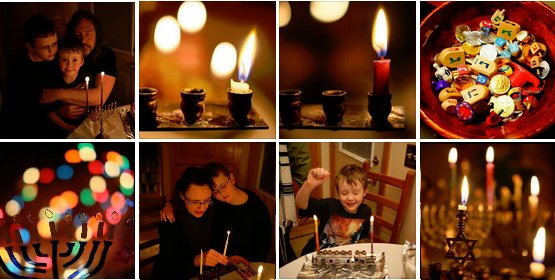 |
Chanukah Day 1 (click for larger)
Left-to-right (top): 1. John with Judah and Josiah; 2. Day One; 3. Shine; 4. Gelt and dreidels;
(bottom): 1. Window Decoration; 2. Olga and Josiah; 3. Judah joy; 4. Chanukah glow
The darkness of this world is forever swept back before the overmastering radiance and power of Yeshua, the King of Glory, the Root and Descendant of David, and the Bright Morning Star (Rev. 22:16). Those who believe in Him are given the "light of life" that overcomes the darkness of this world (John 8:12). Chag Urim Sameach!
Love Believes all things...

12.17.14 (Kislev 25, 5775) "I would have fainted unless I believed to see the goodness of the LORD..." (Psalm 27:13). Faith is therefore self-authenticating: as you trust in the good, the good will be revealed. As Yeshua said, "According to your faith be it done unto you" (Matt. 9:29). And if it is faith that makes you whole, then its lack makes you sick... As you doubt, so you will lose sight of what is real, true, and abiding. Being cynical is cowardly: "There are two ways to be fooled. One is to believe what isn't true; the other is to refuse to believe what is true" (Kierkegaard). A cynic refuses the possibility of truth because he is afraid of being fooled, and for this fear he willingly closes his eyes to the good. "Believe that life is worth living, and your belief will help create the fact" (William James). When we trust God's promises, we affirm an unseen good even if the present hour is shrouded in darkness. Faith sees beyond "the seen" to the unseen (2 Cor. 4:18). The "seen" is not ultimately real, and consequently faith is exiled from the vanity of the present hour. Therefore affirm your faith, friend. Refuse the darkness of fear by choosing to believe in the reality of God's love for your soul, despite the mess you've made of your life. Affirm that God's love is more real, more substantive, and more valuable than anything disclosed in this world that fades away.
 |
Heeding the Call of Hope...

[ The Festival of Chanukah begins tonight after sundown... ]
12.16.14 (Kislev 24, 5775) The only way out of the painful ambiguity of life is to hear a message from the higher world, the Heavenly Voice, that brings hope to our aching and troubled hearts: "Faith comes by hearing the word of Messiah - ῥῆμα Χριστοῦ" (Rom. 10:17). And yet what is the meaning of this message if it is not that all shall be made well by heaven's hand? There is hope, there is hope, and all your fears will one day be cast into outer darkness, swallowed up by God's unending comfort... "Go into all the world and make students (תַּלְמִידִים) of all nations" (Matt 28:19), and that means sharing the hope that what makes us sick - our depravity and despair - has been healed by Jesus, and that we escape the gravity of our own fallenness if we accept his invitation to receive life in him. "For it is you who light my lamp; the LORD my God outshines my darkness."
כִּי־אַתָּה תָּאִיר נֵרִי
יְהוָה אֱלהַי יַגִּיהַּ חָשְׁכִּי
ki · at·tah · ta·ir · ne·ri
Adonai · E·lo·hai · ya·gi·ah · chosh·ki

"For it is you who light my lamp;
the LORD my God outshines my darkness."
(Psalm 18:28)

Hebrew Study Card
Exercising faith means actively listening to the Eternal Voice, the Word of the LORD that calls out in love in search of your heart's trust... To have faith means justifying God's faith in you, that is, understanding that you are worthy of salvation, that you truly matter to God, and that the Voice calls out your name, too.... Living in faith means consciously accepting that you are accepted by God's love and grace. Trusting God means that you bear ambiguity, heartache, and darkness, yet you still allow hope to enlighten your way.
The Rizhiner Rebbe once said, "Let your light penetrate the darkness until the darkness itself becomes the light and there is no longer a division between the two. As it is written, "And there was evening and there was morning, one day." Yea, the darkness and the light are both alike unto Thee, O LORD, as it is written: "If I say, "Surely the darkness shall cover me, and the light about me be night, even the darkness is not dark to you; the night is bright as the day, for darkness is as light with you" (Psalm 139:11-12).
"To have faith is to perceive the wonder that is here, and to be stirred by the desire to integrate the self into the holy order of being. Faith does not spring out of nothing. It comes with the discovery of the holy dimension of our existence. Faith means to hold small things great, to take light matters seriously, to distinguish between the common and the passing from the aspect of the lasting. It is from faith from which we draw the sweetness of life, the taste of the sacred, the joy of the imperishably dear. It is faith that offers us a share in eternity." - Abraham Heschel
We walk by faith, not by sight - by hearing the Word of God, heeding what the Spirit of God is saying to the heart... For now we "see through a glass darkly," which literally means "in a riddle" (ἐν αἰνίγματι). A riddle is an analogy given through some resemblance to the truth, though quite often the correspondences are puzzling and obscure. Hence, "seeing through a glass darkly" means perceiving obscurely or imperfectly, looking "through" something else instead of directly apprehending reality. This is contrasted with the "face to face" (פָּנִים אֶל־פָּנִים) vision and clarity given in the world to come, when our knowledge will be clear and distinct, and the truth of God will no longer be hidden. Being "face to face" with reality means being free of the riddles, the analogies, the semblances, etc., which cause us to languish in uncertainty... Now we know in part, but then shall we know in whole.
In light of the obscurity of life in this temporary age, we are encouraged not to lose heart, since though our outer self is wasting away, our inner self is being raised into newness (ἀνακαινόω) day by day (2 Cor. 4:16). "For our light and transient troubles are achieving for us an everlasting glory whose weight is beyond description, because we are not looking at what can be seen but at what cannot be seen. For what can be seen is temporary, but what cannot be seen is eternal" (2 Cor. 4:17).
Therefore we "walk by faith, not by sight," as if the invisible is indeed visible. We must stay strong and keep hope, for through hope we are saved (Rom. 8:24). Faith is the conviction (ἔλεγχος) of things unseen (Heb. 11:1). Do not be seduced by mere appearances; do not allow yourself to be bewitched into thinking that this world should ever be your home. No, we are strangers and pilgrims here; we are on the journey to the reach "the City of Living God, to heavenly Jerusalem, to the assembly of the firstborn who are enrolled in heaven" (Heb. 12:22-23). Therefore do not lose heart. Keep to the narrow path. Set your affections on things above since your real life is "hidden with God" (Col. 3:1-4). Do not yield to the temptation of despair. Look beyond the "giants of the land" and reckon them as already fallen. Keep pressing on. Chazak, chazak, ve-nit chazek - "Be strong, be strong, and let us be strengthened!" Fight the good fight of the faith. May the LORD our God help you take hold of the eternal life to which you were called (1 Tim. 6:12).
 |
Light in our Darkness...

[ The following entry is related to parashat Vayishlach... ]
12.16.14 (Kislev 24, 5775) "Jacob called the name of the place "the Face of God" (i.e., Peniel: פְּנִיאֵל) saying, "For I have seen God face to face (פּנִים אֶל־פָּנִים), and yet my life has been delivered" (Gen. 32:30). And where did Jacob see God "face to face" except in the struggle of faith, while seeking the blessing, even in the midst of his own inner conflict? And here too may we find the Shining Presence, the Face of God, even in the midst of our troubled lives, as we struggle, refusing to let go until we are taken hold by God's love...
The "name of the place" (שֵׁם הַמָּקוֹם) here refers to the heart, the place of God, the inner sanctuary. Where it says, "let them make me a sanctuary, that I may dwell in their midst" (Exod. 25:8), the text literally reads, let them make me a sanctuary, that I may dwell within them (בְּתוֹכָם), that is, within their hearts. Hamakom is the holy ground of the heart; the Place within where He is known in awe...
Note that even after he was renamed "Israel," the Torah continues to call Jacob by his old name... The sages note that if we drop the Yod from the name Jacob (i.e., Ya'akov: יַעֲקב), we have ekev (עקב), the word "heel," symbolically referring to the lowest level of existence. Adding Yod (י) to the heel is to have the Spirit lead you, even in the lowest of places.
 |
Chanukah and Prophecy...
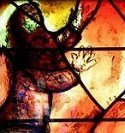
12.15.14 (Kislev 23, 5775) Many Bible scholars say that the prophet Daniel (6th Century BC) foresaw the rise of Alexander the Great centuries beforehand in the vision of a "male goat running from the west" that had a conspicuous horn between its eyes (see Dan. 8:1-12; 21-22). This goat destroyed the power of the kings of Media and Persia (symbolized by two horns on a ram, Dan. 8:20). Though the "goat" (Alexander) became exceedingly great, eventually its horn was "broken into four [kingdoms]," and out of these four horns arose a "little horn" (i.e., the Seleucid king Antiochus "Epiphanes," c. 175-163 BC) who had authority over "the glorious land" (i.e., Israel). This "little horn" (קֶרֶן מִצְּעִירָה) greatly magnified itself, cast down some of the stars (i.e., righteous souls), took away the sacrifices, and defiled the very Sanctuary in Jerusalem.
Antiochus is perhaps most notorious for setting up an altar to Zeus over the altar of burnt offering in Temple compound and sacrificing a pig within the Sanctuary of the Temple itself. This sacrilege is otherwise known as the "abomination of desolation" (שִׁקּוּץ מְשׁמֵם) that was decreed to occur 2,300 days into Antiochus' reign (Dan. 8:13-14). Notice, however, that Daniel's prophecy has a "dual aspect" to it, and the description of the rise of the "little horn" (in Dan. 8:9-10) suggested something far more portentous than the reign of a local tyrant. This horn "grew exceedingly great toward the south, toward the east, and toward the glorious land. It grew great, even to the host of heaven. And some of the host and some of the stars it threw down to the ground and trampled on them."
In light of other New Testament scriptures, it is clear that this "exceedingly great horn" refers to future world leader (sometimes called the "Antichrist") who would one day attempt to "assimilate" all of humanity into a "New World Order" (Dan. 9:26-27, 2 Thess. 2:3; Rev. 13:7-9, etc.). It is likely that it was this sense of the "abomination that makes desolation" that Yeshua referred to in Matt. 24:15 and Mark 13:14, and it is this "abomination that makes desolation" that will be overthrown by Yeshua at the end of the Great Tribulation period (Dan. 8:23-25; Matt. 24:30; Rev. 19:11-16; 20:2, etc.).
 |
The intertestamental Book of Maccabees (c. 2nd Century BC) tell us more about this "little horn" and his vicious oppression of the Jewish people. Antiochus installed Hellenistic Jews to the priesthood and demanded the adherence to Hellenistic cultural ideals. He established edicts that prohibited observing the weekly Sabbath and the other biblical festivals. The reading of the Torah was outlawed and all copies of it were ordered to be burned. Temple sacrifices were forbidden; circumcision was outlawed and the penalty for disobedience was death. Women who disobeyed the edict by circumcising their sons were paraded about the city with their babies hanging at their breasts and then thrown down from the top of the city wall (2 Macc. 6:1-11). Many Jews fled and hid in the wilderness and caves and many died kiddush HaShem - as martyrs (see Heb. 11:36-39). Eventually Jewish resistance to this imposed Hellenization meant war. In 164 BC, in Modin, a small town about 17 miles from Jerusalem, Mattityahu (Matthias), a Hasmonean priest, and his five sons took refuge. When Antiochus' soldiers arrived at Modim to erect an altar to Zeus and force the sacrifice of a pig, Mattityahu and his sons rose up and killed the Syrians. They then fled to the Judean wilderness and were joined by other freedom fighters. After some organizing, they soon engaged in successful guerrilla warfare against their Syrian/Greek oppressors. The three-year campaign culminated in the cleansing and rededication of the Temple (for more on this subject, see Chanukah and Spiritual Warfare).
Note: For more on this subject, see "Why Christians should celebate Chanukah."
 |
Inner Light of Love...
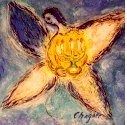
12.15.14 (Kislev 23, 5775) "Whoever has my commandments and keeps them, such is the one who loves me. And the one who loves me will be loved by my Father, and I will love him and will manifest myself to him" (John 14:21). Note that the Greek word translated "manifest" means to "shine inside" (i.e., ἐμφανίζω, from ἐν, "in" and φαίνω, "shine"), indicating that the revelation would be inward light of the Presence of Messiah himself (Χριστὸς ἐν ὑμῖν, ἡ ἐλπὶς τῆς δόξης, Col. 1:27). As we receive God's love, as we embrace it as our own, the love of Messiah will become inwardly visible to you. This comes from a place of surrender and acceptance. As Paul Tillich said, "Sometimes in a moment of weakness light breaks into darkness, and it is as though a voice says, 'You are accepted; you are accepted... Do not seek for anything; do not perform anything; do not intend anything. Simply accept the fact that you are accepted.' If that happens to you, then you experience grace, and everything will be transformed." Ultimately Chanukah is about salvation and transformation - beauty from ashes - and the love of God...
 |
The Miketz Prophecies...

[ Our Torah reading for the Shabbat of Chanukah is parashat Miketz, i.e., Gen. 41:1-44:17. ]
12.15.14 (Kislev 23, 5775) Our Torah portion this week is miketz (מקץ), a word that means "at the end," and therefore it points to the prophetic future (i.e., the "end of days" or acharit ha-yamim). Just as Joseph was a "dreamer" who was betrayed by his brothers but was promoted to a place of glory by the hidden hand of God, so Yeshua was betrayed by his people yet was exalted over all the nations (מֶלֶךְ הַגּוֹיִם). And just as Joseph later disguised himself as a "stranger" and an "Egyptian" to his brothers but was finally revealed to be their savior, so will the Jewish people eventually come to see that Yeshua is the true Savior of Israel. Then will come true the hope of Rav Sha'ul (the Apostle Paul) who wrote, "And so all Israel shall be saved: as it is written, 'There shall come out of Zion the Redeemer (גּוֹאֵל) who shall turn away ungodliness from Jacob'" (Rom. 11:26).
Note: For more on this important topic, see "Joseph and his brothers."
 |
Parashat Miketz - מקץ
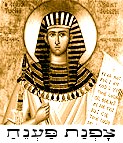
[ The eight days of Chanukah run from Tues. Dec. 16th (i.e., Kislev 25) through Tues. Dec. 23rd this year. The weekly Torah reading is not suspended for Chanukah (as it is for Passover and Sukkot), though additional Torah readings are read for each of the eight days of the holiday. ]
12.14.14 (Kislev 22, 5775) In our Torah portion for Chanukah week, we read how Joseph successfully interpreted Pharaoh's dreams and quickly rose to power in Egypt. Because of a famine in the land of Canaan, however, his brothers came to Egypt in search of food. A disguised Joseph then tested his brothers to see whether they were the same people who had callously sold him into slavery, or whether they had undergone teshuvah (repentance).
The eventual revelation of Joseph and his reconciliation with his brothers is a prophetic picture of acharit ha-yamim (the "End of Days") when Israel, in Great Tribulation, will come to accept Yeshua as Israel's true deliverer. Presently, the veil is still over the eyes of the Jewish people and they collectively regard Yeshua as an "Egyptian" of sorts. In this connection, I list some of the ways that Joseph is a "type" or foreshadowing of the coming Yeshua as the Suffering Servant (see "Mashiach ben Yosef").
For more information, please read the Torah summary page for Miketz and its related articles. You can also download the Shabbat "Table Talk" for the portion here:
Note: This year the eight days of Chanukah begin on Tuesday, December 16th at sundown (1st candle) and will run through Tuesday, December 23rd. The tradition is that on the first night of Chanukah one flame is lit, on the second night two, and so on until the eighth night when eight flames are lit. In this way we remember the 'growth' of the miracle. We also read a small section of Torah for each of the days of Chanukah. See the Parashat hashavu'ah page for more information.
Let your light shine...

12.12.14 (Kislev 20, 5775) Shabbat Shalom, dear friends of the Messiah... When God said, "Let there be light, and there was light" (Gen. 1:3), He seemed to put on light as a robe of the Divine Majesty and Kingship: He wrapped Himself with infinite radiance and power... Therefore: Da lifnei mi attah omed (דַּע לִפְנֵי מִי אַתָּה עוֹמֵד) – "Know before whom you stand." The whole earth is lit up with God's glory, and every bush of the field is aflame before us -- if we have eyes to see (Isa. 6:3). May it please the LORD to open our spiritual eyes so that we can behold more of His glory and majesty in this hour... Amen.
בָּרַכִי נַפְשִׁי אֶת־יְהוָה
יְהוָה אֱלהַי גָּדַלְתָּ מְּאד הוֹד וְהָדָר לָבָשְׁתָּ
עטֶה־אוֹר כַּשַּׂלְמָה נוֹטֶה שָׁמַיִם כַּיְרִיעָה
ba·ra·khi · naf·shi · et · Adonai
Adonai · E·lo·hai · ga·dal·ta · me·od · hod · ve·ha·dar · la·vash·ta;
o·teh · ohr · ka·sal·mah · no·teh · sha·ma·yim · ka·ye·ri·ah

"Bless the LORD, O my soul! O LORD my God, you are very great!
You are clothed with splendor and majesty,
covering yourself with light as with a garment, stretching out
the heavens like a curtain." (Psalm 104:1-2)

Hebrew Study Card
The whole earth is lit up with God's radiant glory, and every bush of the field is aflame before us -- if we have eyes to see (Isa. 6:3). May it please the LORD to open our spiritual eyes so that we can behold more of His glory and majesty in this hour... Stay strong and be of good courage, chaverim. You are loved and appreciated. Amen.
Flowers of Providence...

12.12.14 (Kislev 20, 5775) "Why are you so anxious? Take a lesson from the wildflowers... They neither toil nor spin, yet even Solomon in all his royal glory was not arrayed like one of these ... And if your heavenly Father gives such attention to the appearance of flowers, many of which grow in unseen places, surely he will attend to you, too" (Matt. 6:28-30). So relax; do not let worry blind you to God's ongoing care; do not live as those without faith. As his child, you have a place in your Father's heart; you have a share in his house above. See the Lord as your Dwelling Place "in all generations"; behold his unchanging glory despite the fleeting shadows of this world.
אֲדנָי מָעוֹן אַתָּה הָיִיתָ לָּנוּ בְּדר וָדר
Adonai · ma·on · at·tah · ha·yi·ta · la·nu · be·dor · va·dor

"O Lord, you have been our dwelling place in every generation"
(Psalm 90:1)

The Eternal is our refuge, our "dwelling place," in all generations, and that means in the present generation as well, on the other side of fleeting appearances of this world. When we pray to God as Avinu She-bashamayim, "Our Father in Heaven," we are calling to the One (שֶׁ) who is in (בּ) the midst of the waters (שָׁמָיִם) of Life. As we contemplate God's Eternality and power, may we realize the wonder and sanctity of our short time here.
The bloom of every flower is by eternal purpose, and not one common sparrow is forgotten by your Heavenly Father (Luke 12:6). God's irresistible providence comprehends and orders all things, in every possible world -- from the realm of the subatomic to the cosmic motions of the heavenly bodies. The LORD is the Center: "All things were created by Him, and for Him" and in Him all things consist (συνεστηκεν, lit. "hold together") (Col. 1:16-17). In light of God's providential ordering of our lives, Blaise Pascal asked, "What is left for us but to unite our will to that of God himself, to will in him, with him, and for him the thing that he has eternally willed in us and for us." The Mishnah says it this way: "Do His will as if it was your will that He may do your will as if it was His will" (Avot 2:4). In other words, what else can we do but learn to trust, accept, and to say "yes" to life -- even if at times we may feel like strangers in exile... All our days are ordained; recorded in God's scroll. Therefore may God "teach us to number our days to get a heart of wisdom" (Psalm 90:12).
 |
That which God fears...

12.12.14 (Kislev 20, 5775) From our holy Torah we read: "And now, Israel, what does the LORD your God require of you, but to fear the LORD your God..." (Deut. 10:12). Notice that "fear of the LORD," yirat Adonai (יִרְאַת יהוה), comes first. The sages say that to fear the LORD means that your fear should be like God's fear. But what could God possibly fear, you ask? Only this: that you will turn away from his love. To fear God doesn't mean fearing his punishment as much as it means fearing that which breaches the relationship He desires with you. That is the wound of God's heart, and that is what God "fears." One of the greatest of sins is to forget who you really are: a beloved child of God. To fear the LORD means you understand how dear you are to His heart...
It is written that the fear of the LORD is "the beginning of wisdom (רֵאשִׁית חָכְמָה)," but it also the beginning of the inner experience of God's love... Without the fear of the LORD, you will walk in darkness and be unable to turn away from evil (Psalm 111:10; Prov. 1:7; 9:10; 10:27; 14:27, 15:33; 16:6); you will find yourself alone, in a place of sadness and vexation, of despair and inner pain. The Spirit of God's love plainly declares that "the fear of the LORD leads to life (יִרְאַת יְהוָה לְחַיִּים, lit. "is for life"):
יִרְאַת יהוה לְחַיִּים וְשָׂבֵעַ יָלִין בַּל־יִפָּקֶד רָע
yi·rat · Adonai · le·cha·yim, · ve·sa·ve·'a · ya·lin · bal · yip·pa·ked · ra

"The fear of the LORD leads to life, and the one who has it rests satisfied
and is untouched by evil" (Prov. 19:23)

Some people tend to get this backwards, or they may underestimate the seriousness of the issue. The problem is not that people sometimes sin and therefore risk being sent to hell, but rather that people are incorrigible sinners that presently exist in state of hell... Human nature is incurably sick; the wound of our mortality is indeed fatal (Jer. 17:9; Mark 7:21-23). As Yeshua taught, the way out of bondage to sinful human nature is through the miracle of spiritual rebirth (John 3:3-8; 8:44). When we accept God's love we are delivered from the guilt that justly condemns our souls (Col. 1:13). As it is says "Whoever believes in him is not condemned, but whoever does not believe is condemned already, because he has not believed in the name of the only Son of God" (John 3:18). In other words, unless you truly repent by accepting God's love, you risk an eternally loveless existence... It must be remembered that God does not want any one to perish but for all to be in loving relationship with Him (2 Peter 3:9). "God our Savior desires all people to be saved and to come to the knowledge of the truth" (1 Tim. 2:4). However, "hell is a room locked from the inside," and if you steadfastly refuse to be loved, God Himself will respect your decision...
All this resolves to a sober question about your spiritual identity... Do you believe you are a redeemed child of God? Are you spiritually reborn? Do you accept His love and deliverance, or do you make it conditional, based on your performance? This is not about mere ethics, friends - the world is filled with various kinds of ethical philosophy, after all. No, this is a question about ontology - about who you really are; it's a question about what you are trusting, and it centers on the presence of the miracle within your heart.
We are saved by hope (Rom. 8:24). May you fall before the cross in fear of your sins, but may you be raised up by the reality of God's love for your soul... May you then walk in the awe of God's glorious mercy, "to love him, to serve the LORD your God with all your heart and with all your soul." Amen.
 |
Chanukah and Vigilance...
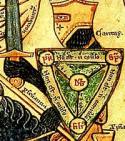
[ The eight-day Festival of Chanukah runs from Dec. 16th - Dec. 23rd this year... ]
12.11.14 (Kislev 19, 5775) A central message of Chanukah is to resist being "assimilated" into this dark world and its benighted culture. As it says, "Do not be conformed to this world, but be transformed (i.e., transfigured by the light) through the renewal (ἀνακαίνωσις) of your mind, that by testing you may discern what is the will of God" (Rom. 12:2). Notice that the Greek word translated "conformed" is a passive verb (συσχηματίζω, derived from σύν, "with," + σχῆμα, "matrix") which means that we must consciously resist being lulled into accepting this world's various ideologies (matrix) that are crafted to ignore Divine the Presence and Truth. In the realm of the spiritual, there is simply no place of neutrality, and if we are not going forward, then it's likely we are going backward... Therefore we are repeatedly commanded to test the spirits (including our own!) and to examine truth claims. We ask God for wisdom and use the discernment from the Holy Spirit.
הַשְׁלִיכוּ מֵעֲלֵיכֶם אֶת־כָּל־פִּשְׁעֵיכֶם
אֲשֶׁר פְּשַׁעְתֶּם בָּם
וַעֲשׂוּ לָכֶם לֵב חָדָשׁ וְרוּחַ חֲדָשָׁה
hash·li·khu · me·a·le·khem · et · kol · pish·e·khem
a·sher · pe·sha·e·tem · bam
va·a·su · la·khem · lev · cha·dash · ve·ru·ach · cha·da·shah

"Cast away from you all the transgressions
that you have committed,
and make yourselves a new heart and a new spirit."
(Ezek. 18:31)

Hebrew Study Card
We must exercise diligence to ensure we are taken captive by the world and its seductive deceptions. Both Passover and Chanukah celebrate spiritual freedom, and indeed the very first word given at Sinai was "I AM the LORD thy God who brought you out (הוֹצֵאתִיךָ)... of the house of slavery" (Exod. 20:2). God's first concern is to be known as your Deliverer, the God of your freedom. Therefore the Spirit of God says, "Thou shalt be free" (2 Cor. 3:17; Gal. 5:1). Set your focus, then, on the Divine Presence and refuse to live in fear of mere men and their political schemes. God has an appointment scheduled with the princes of this world, though we trust he is our Good Shepherd who will keep us from the wrath to come...
Receiving the Light...

[ The eight-day Festival of Chanukah runs from Dec. 16th - Dec. 23rd this year... ]
12.11.14 (Kislev 19, 5775) The essence of Chanukah is simply to receive the light, to bear witness of the radiance of God's victory. We celebrate the work of God, his salvation (יְשׁוּעָה), and the triumph of his love. Therefore its message is "wake up, open your eyes, and believe" the good news: darkness and despair will not prevail; your mourning will find comfort, your grief its solace. Your heart's deepest longing shines brightly, even now, if you will but believe... With God's help, fight the darkness of fear...
קוּמִי אוֹרִי כִּי בָא אוֹרֵךְ
וּכְבוֹד יְהוָה עָלַיִךְ זָרָח
ku·mi o·ri ki va or·rekh
ukh·vod Adonai a·la·yikh za·rach

"Arise, shine, for your light has come,
and the glory of the LORD has risen upon you."
(Isa. 60:1)

Hebrew Study Card
The LORD said to Moses from the midst of the shining flame: 'Take off your sandals from your feet, for the place on which you stand is holy' (Exod. 3:5). The Chofetz Chaim comments: "We all need to rise higher... Never say, I will be able to lift myself up at another time or different place. By faith see that this place, right now, is holy ground, and awaits your response." May God open the "eyes of our heart" to help us see (Eph. 1:18-19).
Related Chanukah Topics:
Gospel in Few Words...

[ I wrote this entry last year but it is worth repeating now, just before the holiday season... ]
12.10.14 (Kislev 18, 5775) Can you expound the essential meaning of the gospel in a single (and preferably short) sentence? How about "Yeshua the Messiah came into the world to save sinners" (1 Tim 1:15), or perhaps, "For our sake he made Him to be sin who knew no sin, so that in Him we might become the righteousness of God" (2 Cor. 5:21)? Of course "unpacking" the meaning of these sentences is where things get more difficult, but a succinct expression of faith can often provide us with a starting point...
"He himself bore our sins in his body on the tree, that we might die to sin and live to righteousness. By his wounds you have been healed" (וּבַחֲבֻרָתוֹ נִרְפָּא־לָנוּ). "For in him all the fullness (πᾶν τὸ πλήρωμα) of God was pleased to dwell, and through him to reconcile to himself all things, whether on earth or in heaven, making peace by the blood of his cross. And you, who once were alienated and hostile in mind, doing evil deeds, he has now reconciled in his body of flesh by his death, in order to present you holy and blameless and above reproach before him, if indeed you continue in the faith, stable and steadfast, not shifting from the hope of the message (εὐαγγέλιον) that you heard" (Col 1:19-23).
"For the Messiah also suffered once for sins, the righteous for the unrighteous (δίκαιος ὑπὲρ ἀδίκων), that he might bring us to God, being put to death in the flesh but made alive in the spirit" (1 Pet. 3:18). "And God is so rich in mercy (מָלֵא רַחֲמִים) and who loves us with such intense love (בְּרב אַהֲבָתוֹ אֲשֶׁר אָהַב אתָנוּ), even when we were dead because of our acts of disobedience, he brought us to life along with the Messiah- it is by grace that you have been delivered (בַּחֶסֶד נוֹשַׁעְתֶּם). That is, God raised us up with the Messiah Yeshua and seated us with him in heaven, in order to exhibit in the ages to come how infinitely rich is his grace, how great is his kindness toward us who are united with the Messiah Yeshua. For you have been delivered by grace through trusting, and even this is not your accomplishment but God's gift" (Eph. 2:4-8).
And of course there is always the old "stand by" verse of John 3:16:
כִּי־כֵן אהֵב אֱלהִים אֶת־הָעוֹלָם
עַד־אֲשֶׁר נָתַן בַּעֲדוֹ אֶת־בְּנוֹ אֶת־יְחִידוֹ
וְכָל־הַמַּאֲמִין בּוֹ לא־יאבַד
כִּי בוֹ יִמְצָא חַיֵּי עוֹלָם׃
ki-khen o·hev E·lo·him et-ha·o·lam,
ad-a·sher na·tan ba·a·do et-be·no et-ye·chi·do,
ve·khol-ha·ma·a·min bo, lo-yo·vad
ki vo yim·tza cha·yei o·lam

"For God so loved the world that he gave his only and unique Son,
so that whoever trusts in Him should not be destroyed, but have eternal life"
(John 3:16)

Hebrew Study Card
Here are a few other simplified expressions of our faith (I am sure you can come up with some others, chaverim): "He has freed us from our sins by his blood" (Rev. 1:5); "he that has the Son has life" (1 John 5:12); "Yeshua died for our sins, was buried, rose again on the third day, and forever reigns" (1 Cor. 15:3-4,25).
Let's push this approach a bit further. How about just four words?
Three words?
Can we find two words?
- "Messiah Crucified" (המָּשִׁיחַ הַנִּצְלָב);
- "Jesus Saves"
- "My help" (בְּעֶזְרָתִי)
Or how about just one word:
- Chesed / love (חֶסֶד)
- Abba (Father)
- Spirit (הָרוּחַ)
- Truth (הָאֱמֶת)
- Hope (תִקוָה)
- Messiah (הַמָּשִׁיחַ)
- Moshia - Savior (מוֹשִׁיעַ)
- King (הַמֶּלֶךְ)
- Jesus / Yeshua (יֵשׁוּעַ) - because whatever your need, the answer is found in Him.
Finally - dare I suggest it? - how about no words at all? To paraphrase Francis of Assisi, "Go into all the world and preach the gospel - and sometimes use words." Of course words are important, but by themselves they are never enough, and very often they are unnecessary (James 2:18)... There is a language of love ("the works of love") that goes beyond any diction the tongue may express. This is why the Name of the LORD always is something more than a mere word, concept, or idea... The Name of the LORD is God's love and power and glory and grace and kindness and mercy and passion as He Himself knows it to be real, true, and utterly invincible in all things...
חֶסֶד־וֶאֱמֶת נִפְגָּשׁוּ
צֶדֶק וְשָׁלוֹם נָשָׁקוּ
che·sed ve·e·met nif·ga·shu,
tzedek ve·sha·lom na·sha·ku

"Love and truth have met,
justice and peace have kissed." (Psalm 85:10)

Hebrew Study Card
Prophecy for every day...
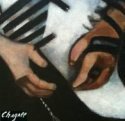
12.10.14 (Kislev 18, 5775) "Listen, O Israel, the LORD is our God; the LORD is one." Instead of thinking of the Shema (שְׁמַע) as a commandment to be externally obeyed, you can regard it as a prophecy about your inner life: "You shall love (וְאָהַבְתָּ) the LORD your God with all your heart, and with all your soul, and with all your might" (Deut. 6:5). Only God can quicken a dead heart, after all, and fill the soul with holy affections. Only the LORD can impart to us strength needed to take hold of promises as He writes His Torah upon our heart. As it is written, "For from him and through him and to him are all things. To him be glory forever" (Rom. 11:36).
וְאָהַבְתָּ אֵת יְהוָה אֱלהֶיךָ בְּכָל־לְבָבְךָ
וּבְכָל־נַפְשְׁךָ וּבְכָל־מְאדֶךָ
ve·a·hav·ta · et · Adonai · E·lo·he·kha · be·khol · le·vav·kha
u·ve·khol · naf·she·kha · u·ve·khol · me·o·de·kha

"You shall love the LORD your God with all your heart
and with all your soul and with all your might"
(Deut. 6:5)

Hebrew Study Card
God will take away your stony heart and give you a new heart, along with a new spirit to be willing to know His love, as it is written, "I will give you a new heart, and a new spirit I will put within you. And I will remove the heart of stone from your flesh and give you a heart of flesh" (Ezek. 36:26). Your new heart will be like Yeshua's own: open, accessible, flexible, trusting, sharing, emotionally alive, able to feel, pulsating with God's energy and power...
The promise is this: "you shall love," since love is what is most true about who you are... You shall love the LORD, since He is the Source and End of all real love. You will love the LORD more and more, as you grow ever closer to Him and one day will behold Him panim-el-panim, "face to face." You shall love the LORD with all your heart, which implies God has indeed given you a new heart to love Him with; and with all your soul, which implies that you are enabled to truly feel, and that your heart is made tender and sensitized; and with all your might - that is, with all your "muchness," your "substance," or that reality that makes you who you really are in the LORD... May the LORD fulfill this prophecy in you, friend.
 |
The Spices of Mercy...

[ The following is related to this week's Torah reading, Parashat Vayeshev... ]
12.10.14 (Kislev 18, 5775) From our Torah portion this week we read: "And they looked up and saw a caravan of Ishmaelites coming from Gilead, with their camels bearing spices, balm, and myrrh, to be taken down to Egypt" (Gen. 37:25). Regarding this verse the sages ask why the Torah includes details about the merchandise of the caravan, and they infer that while God, in his inscrutable plan, decreed that Joseph would indeed be sold into slavery, he nevertheless provided him a measure of comfort during his journey down into Egypt. Therefore we likewise trust that God will season our suffering according to his will with the "spice of his mercies," and with the healing balm of Gilead (1 Cor. 10:13).
Lonesome Visions...

[ The following is related to this week's Torah reading, Parashat Vayeshev... ]
12.09.14 (Kislev 17, 5775) People often resist when they are asked to face reality, and therefore a true prophet is often misunderstood... We see this, for instance, in the case of Joseph, the family's prophet, who, after he related his visions, found the contempt of his brothers and the incredulity of his father (Gen. 37:10-11). This is the heartache of the prophet who is so impassioned about truth that it may lead him to lonely places, set apart from others, yet burdened to share his vision with those who are willing to hear. What good is prophecy, after all, apart from love? Or what good is knowledge, and even faith? (1 Cor. 13:2). The prophet "crosses over" and then is burdened with his vision. Rarely does he gain acceptance, since he asks us to see differently; unsettling our convictions, challenging our certainties. To a culture immersed in its delusions (including religious delusions) the prophet will always be marginalized, since the "world" constantly seeks to escape from reality and therefore cannot tolerate voices of real conviction.
"All truth passes through three stages. First, it is ridiculed. Second, it is violently opposed. Third, it is accepted as being self-evident" (Arthur Shopenhauer).
 |
From the Depths of Hebron...
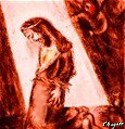
[ The following is related to this week's Torah reading, Parashat Vayeshev... ]
12.09.14 (Kislev 17, 5775) As a child, Joseph was adorned with a "coat of many colors" (כְּתנֶת פַּסִּים) and lived in the glory of his father's house as the favored son. He was an innocent dreamer who was given visions of greatness by God Himself. Despite being despised and rejected by his brothers, however, his father commissioned him "from the depth of Hebron" (מֵעֵמֶק חֶבְרוֹן) to look into their welfare (Gen. 37:14). Notice that the word Hebron (חֶבְרוֹן) comes from a root that means "union" or "fellowship," suggesting that Jacob sent out his beloved son "from the depth their fellowship" to search for his missing children.... Similarly, Yeshua existed in glory with His Father yet chose to divest himself of his splendor to reach out to his brothers. His incarnation was an infinite descent from the "depth of Hebron" (i.e., communion with the Father) into the realm of "no reputation" (i.e., kenosis, "emptying") in search of his brothers' love (Phil. 2:6-7; Luke 19:10).
 |
Israel's Rejected Prince...
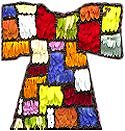
[ The following is related to this week's Torah reading, Parashat Vayeshev... ]
12.09.14 (Kislev 17, 5775) From the beginning of this week's Torah portion (Vayeshev) until the end of Sefer Bereshit (the Book of Genesis), the focus shifts from the patriarch Jacob to his twelve sons, and particularly to his beloved son Joseph (יוֹסֵף). Recall that Joseph's jealous brothers had stripped him of his "coat of many colors" and then mercilessly threw him into a pit -- a providential event that eventually led to the deliverance of the Jewish people by the hand of a "disguised savior." Indeed, story of Joseph's ordeal is a story of divine hashgachah (providential supervision) that foretells the glory of Yeshua our Messiah, both as the Suffering Servant and as a national deliverer of Israel.
The Torah reading begins, "Jacob settled (vayeshev Ya'akov) in the land of his father's sojourning, in the land of Canaan" (Gen. 37:1), but then immediately turns to the story of Joseph, who was seventeen years old at the time: "And these were the generations of Jacob: Joseph being seventeen years old..." (Gen. 37:2). Why does the toldot (genealogy) of Jacob begin with Joseph rather than Reuben (the firstborn son of Leah) here? Was the Torah suggesting that Joseph was regarded by Jacob as his (chosen) "firstborn" son?

Jacob and Joseph undoubtedly shared a lot in common, and this surely caused Jacob to prefer his firstborn son (of Rachel) over his other sons. For instance, both men had infertile mothers who had difficulty in childbirth; both mothers bore two sons; and both were hated by their brothers. In addition, the Torah states that Jacob loved Joseph more than all his other sons since he was the son of his old age, and was the firstborn son (bechor) of his beloved wife Rachel. Indeed, Jacob made him an ornamented tunic (ketonet passim) to indicate his special status in the family.
At any rate, the Talmud (Sanhedrin 106a) notes that whenever the word vayeshev (וַיֵּשֶׁב) is mentioned in Torah, it introduces a painful episode. Immediately following the statement that "Jacob settled (vayeshev Ya'akov) in the land of his father's sojourning," the Torah states that Joseph brought an "evil report" about his brothers to his father. This act ultimately led to the selling of Joseph into slavery and to further heartache for Israel. The Jewish sage Rashi notes that whenever someone called by God wants to "settle down" and live at ease, God orchestrates events to keep him free from complacency. This certainly happened in the case of Jacob, where sibling rivalry and baseless hatred (called sinat chinam: שִׂנְאַת חִנָּם) so disrupted the peace of the family that his children were eventually led into exile and slavery.
But there is redemption and healing, even in the midst of betray and loss... We note that Joseph was sent by his father from the "depth of Hebron" (מֵעֵמֶק חֶבְרוֹן) to seek the welfare of his brothers (Gen. 37:14). Hebron (חֶבְרוֹן) is one of the very first places Abraham lived after he entered the Promised Land (Gen. 13:18). The word itself comes from a root (ח.ב.ר) that means "union," or "friendship," suggesting that from the depth of family union would come struggle but eventual deliverance. The "depths of Hebron" therefore suggests that Joseph's assignment was ultimately redemptive in nature - to restore love to the family by means of God's providential salvation...
 |
Why Celebrate Chanukah?

12.09.14 (Kislev 17, 5775) The word chanukah (חֲנֻכָּה) means "dedication," a word that shares the same root as the Hebrew the word chinukh (חִנּוּךְ), meaning "education." Just as the Maccabees fought and died for the sake of Torah truth, so we must wage war within ourselves and break the stronghold of apathy and indifference that the present world system engenders (Rom. 12:2; Eph. 6:11-18). We must take time to educate ourselves by studying the Torah and New Testament, for by so doing we will be rededicated to the service of the truth and enabled to resist assimilation into the corrupt world. "Love not the world, neither the things that are in the world..." (1 John 2:15).
During this time of year -- and especially during this dark hour of history near the prophesied "end of days" -- it is imperative to remember that we are in the midst of the great "war of the ages," where people's souls and destinies are at stake... This world is likened to the "Valley of Decision," the corridor to the world to come... We cannot afford to be indifferent to the darkness that continues to blind the eyes of so many people. We must take a stand for God's truth and be fully equipped to give an account for the hope we have in Yeshua. Ultimately the "cleansing of the Temple" is a matter of the heart, chaverim....
We are all called to "fight the good fight of faith" and to take hold of the eternal life given to us in Yeshua our LORD (1 Tim. 6:12). Among other things this means refusing to assimilate with the corrupt world system (Κόσμος) and forfeiting our identity in Yeshua.... Chanukah is a "fighting holiday" -- a call to resist the oppression of this world and to rededicate our lives entirely to God.... Indeed, of all the people in the world, Christians who love Yeshua should should understand the true meaning of Chanukah and to rejoice that the Yeshua our Messiah overcame this world.
For those who want some additional information about why Chanukah is so important, please see the article, "Let your light shine - Why Christians should celebrate Chanukah." I hope you will find it encouraging, chaverim.
כָּךְ יָאֵר נָא אוֹרְכֶם לִפְנֵי בְּנֵי אָדָם
לְמַעַן יִרְאוּ אֶת מַעֲשֵׂיכֶם הַטּוֹבִים
וִיכַבְּדוּ אֶת־אֲבִיכֶם שֶׁבַּשָׁמָיִם
kakh · ya·er · na · o·re·khem · lif·nei · be·nei · a·dam
le·ma·an · yir·u · et · ma·a·se·khem · hat·to·vim
vi·kha·be·du · et · a·vi·khem · she·ba·sha·ma·yim

"Let your light so shine before men,
that they may see your good works,
and glorify your Father in heaven"
(Matt. 5:16)
Οὕτως λαμψάτω τὸ φῶς ὑμῶν ἔμπροσθεν τῶν ἀνθρώπων,
ὅπως ἴδωσιν ὑμῶν τὰ καλὰ ἔργα,
καὶ δοξάσωσιν τὸν πατέρα ὑμῶν τὸν ἐν τοῖς οὐρανοῖς

During this holiday season and forever: "May the God of hope (אלהֵי הַתִּקְוָה) fill you with all joy and peace in believing (שִׂמְחָה וְשָׁלוֹם בָּאֱמוּנָה), so that by the power of the Holy Spirit (עז רוּחַ הַקּדֶשׁ) you may abound in hope" (Rom. 15:13). May you be filled with the light of hope. Chag Urim Same'ach - "Happy Festival of Lights!"
Note: It is somewhat ironic that the only Scriptural reference to the Festival of Chanukah occurs in the New Testament, not in the Tanakh or the intertestamental literature (i.e., the Jewish Apocrypha). In the Gospel of John we read that Yeshua was at the Temple in Jerusalem during the "Feast of Dedication" (חַג חֲנוּכָּה), that is, Chanukah (John 10:22). During a season of remembering miracles (nissim), Yeshua pointed out that the works that He did attested to His claim to be the long-awaited Messiah of the Jewish people (John 10:37-38). His works and character clearly displayed the true Light of who He was, and these works still shine to us today. Again, for more on this topic see: "Let your Light Shine: Why Christians Should Celebrate Chanukah."
 |
What are you seeking?

[ The following is related to this week's Torah reading, Parashat Vayeshev... ]
12.08.14 (Kislev 16, 5775) From our Torah this week we read: "And a man found him [Joseph] wandering in the fields. And the man asked him, "What are you seeking?" (Gen. 37:15). The sages say this was not an ordinary man but rather an angel sent to encourage Joseph to keep focused despite his forthcoming trials. Note that the Hebrew text literally says the man asked Joseph "to say (i.e., lemor: לֵאמר), 'What will you seek?'" (i.e., mah-tevakesh: מַה־תְּבַקֵּשׁ). In other words, the man asked Joseph to discover what motivated him by asking himself, "What do I seek? What am I looking for?" Indeed, we are often unconscious of what really matters to us. What does your heart seek first of all? Yeshua said, "Seek first the kingdom of God and his righteousness, and all these things will be added to you" (Matt. 6:33). Because Joseph never lost sight of what mattered, he was able to withstand temptation and tribulation for the sake of God's greater blessing.
So what are you seeking today? (John 1:38) The Spirit of the Living God calls out, "Seek Me and live" (Amos 5:4). If you are feeling empty today, ask God to feed you with His life-giving food. Ask Him for energy, power, and strength... Seek the LORD and His goodness. He is faithful and true and will surely answer the sincere cry of the heart: "You will seek me and find me, when you seek me with all your heart."
וּבִקַּשְׁתֶּם אתִי וּמְצָאתֶם
כִּי תִדְרְשֻׁנִי בְּכָל־לְבַבְכֶם
u'vik·kash·tem · o·ti · u·metz·a·tem
ki · tid·re·shu·ni · be·khol · le·vav·khem

"You will seek me and find me
if you search for me with all your heart"
(Jer. 29:13)

Hebrew Study Card
Note that this verse includes the implication that we will discover that the LORD is the answer to our heart's cry for love, significance, purpose, etc., when we search for Him bekhol levavkhem - with all our hearts (but not the other way around). In other words, if we do not search for God authentically - with the full passion of our hearts - then we will not find Him, since God only reveals Himself in the truth of reality. Some things in life are only known in the passion of faith... things like love, beauty, honor, and so on. As Pascal once said, "The heart has its reasons that reason knows not of..."
The problem with many of us is not that we are so hungry, but rather that we are not hungry enough... We settle for junk food when God spreads out his banqueting table before us; we hanker after cheap thrills instead of experiencing the very love of God... There is a "deeper hunger" for life, a more urgent desire, and I pray we are all touched by such yearning; there is a "blessed need" that expresses our soul's cry for God - a "divine discontent" that leads us to a deeper sense of contentment for the heart (Matt. 5:6).
"Seek first the kingdom of God and his righteousness (בַּקְּשׁוּ רִאשֹׁנָה מַלְכוּת אֱלהִים), and all these things will be added to you" (Matt. 6:33). In the end, if we cannot say we have lived well, then nothing else matters... Seeking God is an ongoing journey, a "how" of life, not a recipe or formula, no matter how venerated. Seeking God is the very aim of life, and in the world to come, I am afraid that most of us will regret that we did not pursue the Lord with all our hearts while we had the opportunity to do so. May God help each of us wake up and put first things first in our lives. Amen.
 |
Treasures of the Heart...

12.08.14 (Kislev 16, 5775) Our Lord appealed to us: "Do not lay up for yourselves treasures on earth, where moth and rust destroy and where thieves break in and steal, but lay up for yourselves treasures in heaven, where neither moth nor rust destroys and where thieves do not break in and steal. For where your treasure is, there your heart will be also" (Matt. 6:19-21). This teaches us that the good of the heavenly world is not subject to the decay of this world, and that God invites our hearts to find abiding treasure in His Presence.
This world is not our home; we are "strangers" here. It is an affliction to wait for the LORD, a blessed discontent, a "homesickness" of heart... The apostle Paul says our loneliness and alienation prepare for us an "eternal weight of glory" beyond all comparison, because we are not looking at what can be seen but at what cannot be seen. "For what can be seen is temporary, but what cannot be seen is eternal" (2 Cor. 4:17-18). Just as the "two-souled" man is unstable in all his ways, so the process of being "educated for eternity" means learning to focus our heart's passion and hope on the glory of heaven. "For where your treasure is, there will your heart be also."
Note: My mother Jocelyn collapsed yesterday and is now in the hospital getting some tests done. Please pray for her healing dear friends. Thank you so much.
 |
Love not the World...

[ The following is related to the holiday of Chanukah, which begins Dec. 16th at sundown... ]
12.0.14 (Kislev 15, 5775) Regarding the foundational verse, "And the earth was without form and void (תהוּ וָבהוּ), and darkness was upon the surface of the deep" (Gen. 1:2), the midrash comments: "Darkness -- these are the Greeks who darkened the eyes of the Jewish nation with their evil decrees." The utter darkness of Hellenistic thought came disguised as an angel of light, as "enlightened" thinking, but whenever such humanism usurps the authority of divine revelation, the result is exile and disorder. Indeed, the very worst kind of exile is to be unaware that you are in exile, to be so blinded that you do not see that you do not see... As Yeshua said, "If the light in you is darkness, how great is that darkness!" (Matt. 6:23); and "be careful lest the light in you be darkness" (Luke 11:35). In the end, the world and its blind lusts will pass away, for it is "tohu" (תּהוּ) - confusion and unreality - but whoever does the will of God abides forever (1 John 2:15-17).
The realm of this "fallen world" -- understood in terms of the "fellowship" (κοινωνία) of darkness -- is something from which we are delivered and of which we are no longer to be enslaved. As it is written, "God has delivered us from the domain of darkness and transferred us to the kingdom of his beloved Son" (Col. 1:13). Likewise Yeshua said, "If you belonged to the world, the world would love you as its own" (John 15:19). In other words, we are "in" but not "of" this world (John 17:15), and though we physically coexist with others in this time-space, we are no longer citizens of this fallen world and its underlying value system. We are not to love this world, nor the things this world values, since doing so embraces a philosophy of life that is at war with the Father and contrary to the truth of eternity (1 John 2:16; James 4:4). The fallen world values "the flesh" and the "desire of the eyes" that is patterned according to the "arrogance of life." In other words, it is a "beauty pageant" that esteems others based on their accidental qualities instead of their inner and essential qualities. In this connection, let me quote from Henri Nouwen regarding slavery to the world and its perverse value system:
At issue here is the question: "To whom do I belong? God or to the world?"... As long as I keep running about asking: "Do you love me? Do you really love me?" I give all power to the voices of the world and put myself in bondage because the world is filled with "ifs." The world says: "Yes, I love you if you are good-looking, intelligent, and wealthy. I love you if you have a good education, a good job, and good connections. I love you if you produce much, sell much, and buy much." There are endless "ifs" hidden in the world's love. These "ifs" enslave me, since it is impossible to respond adequately to all of them. The world's love is and always will be conditional. As long as I keep looking for my true self in the world of conditional love, I will remain "hooked" to the world - trying, failing, and trying again. It is a world that fosters addictions because what it offers cannot satisfy the deepest craving of my heart." (Nouwen: Return of The Prodigal Son; p42-43)
We see then the connection between worldliness and idolatry, since idolatry essentially involves trying to find your identity, your worth, your satisfaction, and your ultimate fulfillment in the realm of the transitory and the finite rather than in God.... We are (rightly) warned against the vices of "worldliness" and are admonished to abstain from popular culture and its spurious values, but note well that worldliness extends well beyond all this, since it concerns understanding the identity and nature of the person as a whole. The fruit of worldliness is the result of being rooted in this world rather than in God's kingdom. The various desires of the human heart - even the desire for "normal things" like personal happiness in this world - may be regarded as entirely "worldly" if they are devoid of submission to God and His rule....
A principle of spiritual life is that the "inner is not the outer," and vice-versa. People are quite easily deceived by mere appearances, yet the eye of faith must be trained to look beyond surface phenomena to discern the underlying Reality that upholds the world. This is perhaps most evident in the case of the cross of Yeshua, which the carnal eye regards as a matter of shame and defeat, but the eye of faith regards as the very wisdom, power, and love of Almighty God Himself... Of Yeshua it is said, "he [Messiah] grew up before him like a young plant, and like a root out of dry ground; he had no form or majesty that we should look at him, and no beauty that we should desire him."
Those who rely on mere appearances will invariably find themselves confounded. The LORD therefore commissioned the prophet: "Go, and say to this people: 'Keep on hearing, but do not understand; keep on seeing, but do not perceive'" (Isa. 6:9). Where it is written, "God gave them over to their stubborn hearts, to follow their own devices" (Psalm 81:12; Rom. 1:24); and "they went backward and not forward" (Jer. 7:24), we learn there is no place of "neutrality" or studied indifference toward God... We are either going forward with Him or going backward; we are either drawing near or pulling our hearts away (Rev. 3:16).
 |
Parashat Vayeshev - וישב

[ The following is related to this week's Torah reading, Parashat Vayeshev. Please read the Torah portion to "find your place" here. ]
12.07.14 (Kislev 15, 5775) In our Torah portion for this week (Vayeshev), we read that Joseph's jealous brothers stripped him of his "coat of many colors" and mercilessly threw him into a pit -- a providential event that eventually led to the deliverance of the Jewish people by the hand of a "disguised savior." Indeed, the life of Israel's chosen son Joseph foreshadowed the two advents of Yeshua our Messiah: first as Israel's Suffering Servant, and second as the national deliverer of the Jewish people during tribulation...
Note: For more information, please read the Torah summary page for Vayeshev and its related articles. You can also download the Shabbat "Table Talk" for the portion here:
Our Common Struggle...

[ The following entry is related to this week's Torah reading, parashat Vayishlach... ]
12.05.14 (Kislev 13, 5775) Jacob's struggle to find healing is also our own. Each of us must resolve the pain of our past by knowing ourselves as accepted in the present; each of us must "struggle with the Angel" to overcome the voices of doubt and condemnation that may haunt our thinking. We may be wounded in our fight to take hold of God's love, but truth of that love will never be vanquished! If God has called to your heart, keep pressing on! Take hold of your high calling! Endure the "dungeons of life." Keep believing that your deliverance will come! There is a future and a hope for you (Jer. 29:11).
וְיָדַעְתָּ כִּי־יְהוָה אֱלהֶיךָ הוּא הָאֱלהִים
הָאֵל הַנֶּאֱמָן שׁמֵר הַבְּרִית וְהַחֶסֶד לְאהֲבָיו
וּלְשׁמְרֵי מִצְוֹתָיו לְאֶלֶף דּוֹר
va·ya·da·ta · ki · Adonai · e·lo·he·kha · hu · ha·e·lo·him
ha·el · ha·ne·e·man · sho·mer · ha·be·rit · ve·ha·che·sed · le·o·ha·vav
ul·shom·rei · mitz·vo·tav · le·e·lef · dor

"Know therefore that the LORD your God is God,
the faithful God who keeps covenant and steadfast love with those who love him
and keep his commandments, to a thousand generations."
(Deut. 7:9)

Recall that Jacob testified to his brother Esau: "God has dealt graciously with me, and I have enough" (Gen. 33:11), literally, "I have everything" (יֶשׁ־לִי־כל). However even after Jacob was renamed "Israel" by the Angel, the Torah still often calls him "Jacob," which suggests that our spiritual transformation is often three steps forward, two steps back...
Be Strong, Be Strengthened...
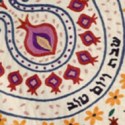
12.05.14 (Kislev 13, 5775) The central message of the cross of Messiah is that God regards you as personally worth dying for, and indeed, that your life is worth the exchange of His own... You are treasured; you are loved. This is of first importance (1 Cor. 15:3-5). "For God so loved the world, that he gave his only Son, that whoever believes in him should not perish but have eternal life" (John 3:16)
Your Heavenly Father sees in secret... "The deepest thing in our nature is this region of heart in which we dwell alone with our willingnesses and our unwillingnesses, our faiths and our fears" (William James). It is there, in the secret place of the heart, that the sound of the "knock" is either heard or disregarded (Rev 3:20). May the Lord give us the willingness to do His will and the courage to believe in His love. And may God deliver us from doubt and from every other fear. May we all be strong in faith, not staggering over the promises, but giving glory to God for the miracle of Yeshua our LORD. May we all be rooted and grounded in love so that we are empowered to apprehend the very "breadth and length and height and depth" of the love of God given to us in Messiah, so that we shall all be filled with all the fullness of God. Shabbat Shalom, chaverim!
 |
Inner Light of Faith...

[ Chanukah begins in less than two weeks -- at sundown on Tuesday, Dec. 16th... ]
12.04.14 (Kislev 12, 5775) Allow the light of God's love to shine in you brightly. As Yeshua our Moshia' said, "Whoever has my commandments and keeps them, such is the one who loves me. And the one who loves me will be loved by my Father, and I will love him and will manifest myself to him" (John 14:21). Note that the Greek word for "manifest" means to "shine inside" (i.e., ἐμφανίζω, from ἐν, "in" and φαίνω, "shine"), indicating that the revelation would be inward light of the Divine Presence. The Hebrew word for "praise" (i.e., tehillah: תְּהִלָּה) comes from a verb that means "to shine" (i.e., halal: הָלַל), from which we derive the word "halo." Similarly, the word "aura" comes from the Hebrew word "ohr" (אוֹר), meaning "light." Let your inner light shine before others so that they may see your good works and give honor to your Father who is in heaven" (Matt. 5:16).
אֱלהִים יְחָנֵּנוּ וִיבָרְכֵנוּ
יָאֵר פָּנָיו אִתָּנוּ סֶלָה
E·lo·him · ye·chon·nei·nu · vi·var·khei·nu
ya·er · pa·nav · it·ta·nu · se·lah

"May God be gracious to us and bless us
and make his face to shine upon us, selah."
(Psalm 67:1)

Inner light comes from God: "God is light, and in him is no darkness at all." We "walk in the light," experiencing inner peace and joy in the Holy Spirit when we heed and obey the Voice of God's love and abide in the secret place of His Love. The people of God are united to one another by the power of God's love. O LORD God, "light up my eyes lest I sleep the sleep of death" (Psalm 13:3). May the light and love of our God shine within you, friends!
Jacob's Surrender...
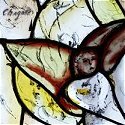
[ The following entry is related to this week's Torah reading, parashat Vayishlach... ]
12.03.14 (Kislev 11, 5775) Our Torah portion this week tells the story of how Jacob fled from the land of Haran to return home, but this forced him to directly face the pain of his past. Jacob was especially anxious about seeing his aggrieved brother again, and therefore he prayed to God in humility for deliverance (Gen. 32:9-11). He then sent messengers ahead with gifts for Esau, and when he finally approached him, Jacob humbly bowed down seven times in deep respect. The sages comment that Jacob realized the only hope he had of protecting himself and his family was to diminish himself... His long-standing battle with Esau had really been an inner struggle with his own ego - his own insatiable desire to be first, to secure his father's favor, and so on. Because of this, Jacob realized he could only find peace with his brother if he first found peace within himself, and therefore he let go of his need to be first and surrendered himself. Paradoxically, we must descend in order to ascend, and the "the way up is the way down." As Yeshua said, "The first shall be last and the last shall be first," and "Whoever would be first among you must be slave of all" (Mark 9:35; 10:44). Becoming "nothing" (i.e., ayin) in this world is the condition for life in the world to come (Gal. 6:3). When you are "not there," you are no longer under the influence of the ego, and therefore you are set free to be yourself and to serve God (Col. 3:1-3).
Now this is not pious talk that is ideal but practically unattainable; no, we are enabled to extinguish the demands of the ego by trusting in the miracle of God, not by trying to efface ourselves... Surrender is not another venture of the ego. Life in the Spirit means trusting that God will do for you what you cannot do for yourself... We can only take hold of what God has done for us by "letting go" of our own devices (Phil. 2:13). When we really let go and trust, we will be lifted up by the "Torah of the Spirit of life" (Rom. 8:2). The way is not trying but trusting; not struggling but resting; not of clinging to life, but of letting go...
Note: While it's true Esau was profane and wicked, it is also true that Jacob wrongfully deceived his father, stole the blessing from his brother, and even used the Name of God in vain (Gen. 27:20). However, whereas Jacob lied to obtain the blessing, Esau lived a lie with his life... Moreover Jacob was punished by being sent into exile for his sin, whereas Esau lived off the "fat of the land" and enjoyed worldly prosperity. Jacob grew into a small clan of eleven sons and a daughter, whereas Esau had many children and an entire army at his disposal. It is dangerous to judge the brothers based on appearances, especially since the tzaddik will be tested in ways that the wicked is not... God let go of Esau because Esau had let go of God; but Jacob held on for dear life and was wounded in the process. In the end, God chose Jacob because he loved him - and for no other reason (Rom. 9:10-18).
 |
Wresting the Blessing...

[ The following entry is related to this week's Torah reading, parashat Vayishlach... ]
12.03.14 (Kislev 11, 5775) In our Torah portion for this week (i.e., parashat Vayishlach), we read how Jacob wrestled with a mysterious "Man" until the break of dawn, but refused to let go until he had secured God's blessing (Gen. 32:24-26). This climactic moment marked a "rebirth" experience for Jacob as signified by his new name "Israel" (יִשְׂרָאֵל), meaning "one who has striven (שָׂרָה) with God (אֱלהִים) and prevailed" (Gen. 32:28). It is fascinating to notice that Jacob was not renamed "God-fearer," or "God-lover," or even "Man of faith," but rather "God-wrestler" – one who struggles with God until the blessing comes... As Yeshua said, "Blessed are those who hunger and thirst for righteousness" – that is, for those who struggle and search for truth – "for they shall be filled" (Matt. 5:6). The blessing comes with a wound, however: The limp that Jacob acquired constantly reminded him of his ongoing need for God's help as he walked through this life. "The one who falls on this Stone will be broken to pieces; but when it falls on anyone, it will crush him" (Matt. 21:44).
So how are you struggling? How does that feed your hunger for God? The characteristically Jewish approach to life is to struggle, to fight, and to ask hard questions until we find out who we really are and what we call ourselves... We can change what has happened in our past by changing what is happening in our present: "For thus says the LORD to the house of Israel: dirshuni vichyu (דִּרְשׁוּנִי וִחְיוּ) - "Seek me and live" (Amos 5:4).
 |
 |
The Torah of Wrestling...

[ The following entry is related to this week's Torah reading, parashat Vayishlach... ]
12.02.14 (Kislev 10, 5775) "Not everyone who says to me, 'Lord, Lord,' will enter the kingdom of heaven, but the one who does the will of my Father who is in heaven. On that day many will say to me, 'Lord, Lord, did we not prophesy in your name, and cast out demons in your name, and do many mighty works in your name?' And then will I declare to them, 'I never knew you; depart from me, you workers of lawlessness'" (Matt. 7:21-23). Despite the practice and profession of their faith, these people were strangers to God... They had a false sense of assurance, believing that they were "serving God" while they really were not... So the essential question here is whether Yeshua truly knows you. You may know a lot about God, religion, spirituality, and yet you may remain unknown by him... Where do you find life? What are you loving? Where are you going?
"Not everyone who says to me, 'Lord, Lord,' will enter the kingdom of heaven, but the one who does the will of my Father who is in heaven" (Matt. 7:21). Yet what is the will of the Father but to trust in Messiah for life (John 6:40)? "What must we do, to be doing the works of God?" Yeshua answers: "This is the work of God, that you believe in the One whom he has sent" (John 6:28-29). The Torah of God centers on trusting the Messiah (Titus 3:5-7).
On that day many will say to me, 'Lord, Lord, did we not ... do many mighty works in your name?' And then will I say to them, 'I never knew you; depart from me, you workers of lawlessness' (Matt. 7:22-23). From this we see that good works - even those done in the name of Messiah - are insufficient for life, and that something more is needed... That "something more" is the reality of relationship with him. However, even Yeshua's sacrifice on the cross can't bring you into relationship with him apart from receiving it for your healing... By faith you encounter Yeshua clothed in your flesh, your sin, and suffering death for you. "As long as Christ remains outside of us we are separated from him."
Some people feel frightened when they consider all this, but fear arises only if we miss Yeshua's point... Good works can't save you, even those performed in the Savior's name... What saves you is trusting in God's great love for your life: "This is the work of God, to trust in the One whom God has sent [for you]" (John 6:28-29). Genuine salvation is "from the LORD," that is, comes as a result of his loving intervention on your behalf (Titus 3:5-7; Eph. 2:8-10). This is the will of the Father, the true Torah of the LORD, namely, to honor the Messiah and know him by faith... You trust him for eternal life, you believe that he bears your sins, you seek to know his heart, and you desire to share your life with him. It is lawlessness to reject the Torah of the LORD that commands us to follow Messiah and know him in all our ways - including the ways of our struggles, our fears, and so on... Each of us must wrestle alone, in the dark places of fear, to find our new name from God (Gen. 32:24). Is the blessing for you or not? The essential thing is to know (and more importantly) to be known by Yeshua.... It is a matter of trust, of sharing your heart, being real with him, walking with him, loving him... "This is the work of God, to trust in the One whom God has sent [for you]." Trusting God means accepting that you are loved (and safe) because of who God is.
The gospel is "the power of God for salvation to everyone who believes, to the Jew first and also to the Greek" (Rom. 1:16). It is a miracle of being in a right relationship with God. We are pursued by his love, and he haunts us until we surrender to his will... Like Jonah we first must be "swallowed up" in consciousness of our own rebellion before we realize we are undone, that we are without remedy apart from God's intervention and deliverance. We start there - in the "belly of the fish" - and later are resurrected to go forth by God's mercy and grace. As we look to Yeshua, as we lean on him, he reveals more of himself to us. He gives us the grace and strength we need; he is always enough...
Whether Yeshua is living in you (and you are living in Him) is the most important question of your life upon which everything else turns. The great mystery is "Christ in you, the hope of glory" (Col. 1:27). As Ravenhill once said, "I don't ask people if they're saved anymore; I look them straight in the eye and say, "Does Christ live inside you?" Indeed, He is present right now -- for you -- in this very moment... Are you connected with Him in the truth? Are you drawing life from His life? Do you really live in Yeshua? "God is making his appeal through us. We implore you on behalf of Messiah, be reconciled to God" (2 Cor. 5:20).
Each of us must wrestle alone, in the dark places of fear, to receive our new name from God (see Gen. 32:24). Again I ask: Is the blessing for you or not? Are you willing to be loved and accepted by him? What is your name? What do you call yourself? You cannot know God apart from his love, yet for some people that is exactly where the struggle lies... Look within your heart; test yourself; do you believe God cares for you? Take hold of the promise and do not let go until you know who you are in his love. "To the one who conquers I will give some of the hidden manna, and I will give him a white stone, with a new name written on the stone that no one knows except the one who receives it" (Rev. 2:17).
Repeat these affirmations of faith:
The blessing is there for you, though you might need to wrestle in faith to fully take hold of your identity in Messiah. May God help you answer to the new name he calls out to you...
בָּרוּךְ הוּא הָאֱלהִים אֲבִי אֲדנֵינוּ יֵשׁוּעַ הַמָּשִׁיחַ
אֲשֶׁר בֵּרַךְ אתָנוּ מִשְּׁמֵי מְעוֹנוֹ
בְּכָל־בִּרְכַּת הָרוּחַ בַּמָּשִׁיחַ
ba·rukh · hu · ha·e·lo·him · av·i · a·do·nei·nu · Yeshua · ha·ma·shi·ach
a·sher · be·rakh · o·ta·nu · mi·she·mei · me·o·no
be·khol · bir·kat · ha·ru·ach · ba·ma·shi·ach

"Blessed be Adonai, Father of our Lord Yeshua the Messiah,
who has blessed us in heavenly places
with every spiritual blessing in the Messiah." (Eph. 1:3)

Download Study Card
Anticipating Chanukah...

[ Note: Chanukah begins Tuesday Dec. 16th this year. Let me encourage you to purchase a Chanukah menorah and light the candles along with us this year. Step by step instructions are provided on the Chanukah pages on the site, friends... ]
12.02.14 (Kislev 10, 5775) We are getting excited about the upcoming holiday of Chanukah (which begins in just two weeks), so our family made some cookies and decorated them to help us get into the festive mood of the season. We are also listening to some traditional Chanukah music, singing songs like "Ma'oz Tzur" (מעוז צור), "I Have A Little Dreidel," "Chanukah Oh Chanukah," and so on.
Note: The Chanukah Blessings page includes some free "Hebrew Study Cards" you can use for your Chanukah celebrations. Each card includes the Hebrew text, phonetic transliteration, and English translation for the blessing. In addition I have recorded Hebrew audio clips for the Chanukah blessings as well, so you can listen to the Hebrew as your learn to recite the blessings... I have also created a handy one page summary of the Hebrew blessings you can download here. I hope you find this material helpful, chaverim! Chag Chanukah Sameach (חַג חֲנֻכָּה שָׂמֵחַ)!
אַתָּה הִצַּבְתָּ כָּל־גְּבוּלוֹת אָרֶץ
קַיִץ וָחרֶף אַתָּה יְצַרְתָּם
at·tah · hitz·tzav·ta · kol · ge·vu·lot · a·retz
ka·yitz · va·cho·ref · at·tah · ye·tzar·tam

"You have fixed all the boundaries of the earth;
you have made summer and winter." (Psalm 74:17)

Telling God your name...
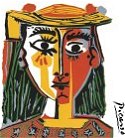
[ The following entry is related to this week's Torah reading, parashat Vayishlach... ]
12.01.14 (Kislev 9, 5775) Some people make it the business of theology to know God's Name, but God begins by first asking for our name instead. Recall that Jacob had disguised who he really was in the hope of obtaining the blessing (Gen. 27), though his duplicity forced him into an exile that lasted until he was finally willing to be honest with himself. And like Jacob, each of us must answer God's question: "What is your name?" (Gen. 32:27). When we "wrestle through" this question to face who we really are, we encounter God and find our blessing, that is, our true identity. Each of us has to go through the process of being renamed from "manipulator" (i.e., Yaakov) to "one in whom God rules" (i.e., Israel). But note the order: it is only when we "tell God our name," that is, own who we really are, that He meets with us "face to face" (Gen. 32:30). You will not be able to say, "I will not let you go unless you bless me," until you are willing tell God your name (Gen. 32:26-27).
I should add that while "telling God your name" can be painful and even frightening, it is not the last word about who you really are. We are faced with an inner dualism as we struggle to take account of our lives. On the one hand, we need to confess the truth of our sinfulness, brokenness, and so on, while on the other we must endure ourselves and find faith that God's blessing nevertheless belongs to us, despite the mess we've made of our lives.... We have to be willing to accept God's new name for us and to believe that God will miraculously transform our inner nature for good. We are renamed from Yaakov to Israel, though we still know ourselves as both. Jacob was renamed "Israel" but afterward he walked with a limp, seeing both the new and the old natures within him. Jacob still struggled, though his struggle was now focused on walking as God's beloved child in this world: the limp was given to help him lean on the Lord for support.
Note: Some people may need help learning to "endure themselves." Many are able, it seems, to receive the hope that they are forgiven for their past sins, but they are subsequently scandalized by encountering their own inner struggles, and they eventually despair over their ongoing weakness... Tragically, some are even tempted to regard the warfare within the heart as a sign of being devoid of all saving grace! We must remember, however, that there is a real struggle between the desires of the flesh and the desires of the Spirit (Gal. 5:17). We must never move away from simple trust in the message of God's unconditional love demonstrated at the cross; we must never seek to legitimize our place in God's heart. When we walk by the Spirit, we are no longer under the law (Gal. 5:18), which is to say, we no longer need to justify ourselves but instead trust in God's power to transform us. Just as we are saved by the love of God, so are we changed, so do we grow.
 |
|































































